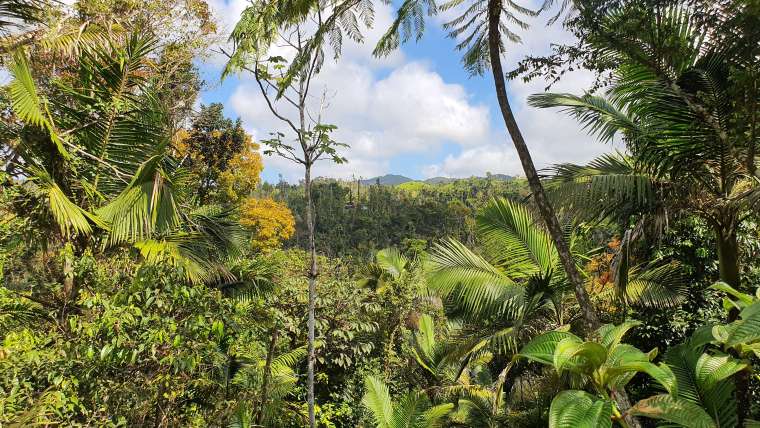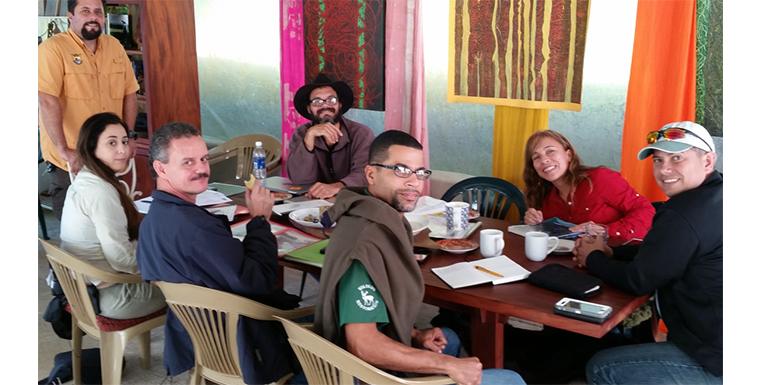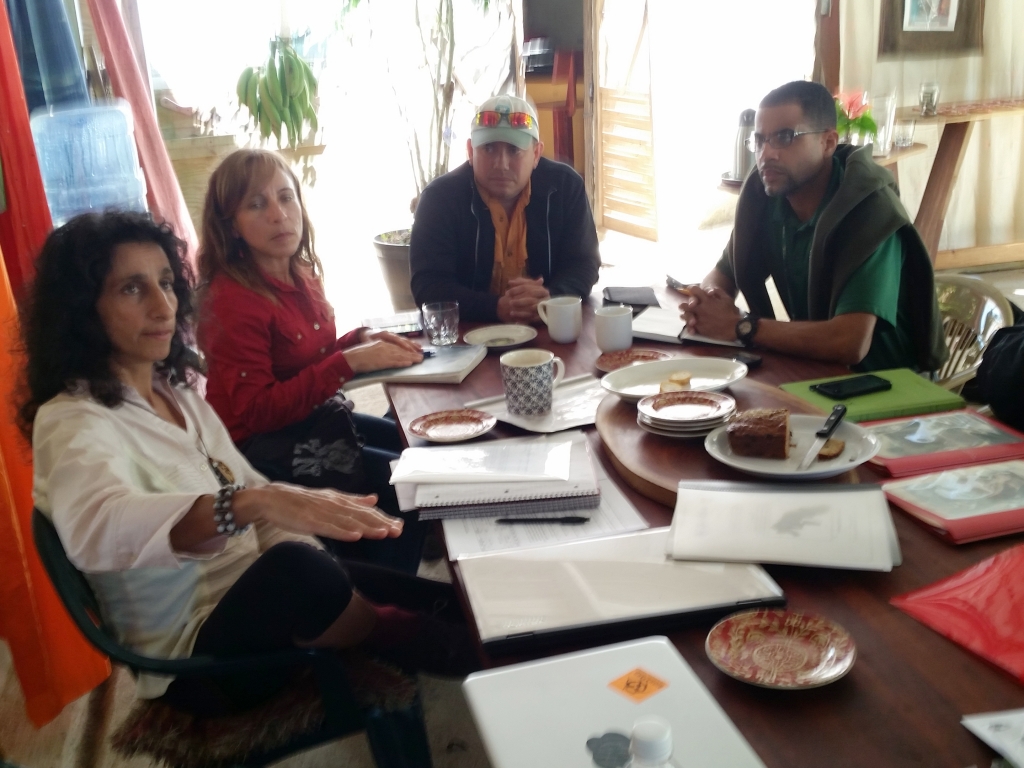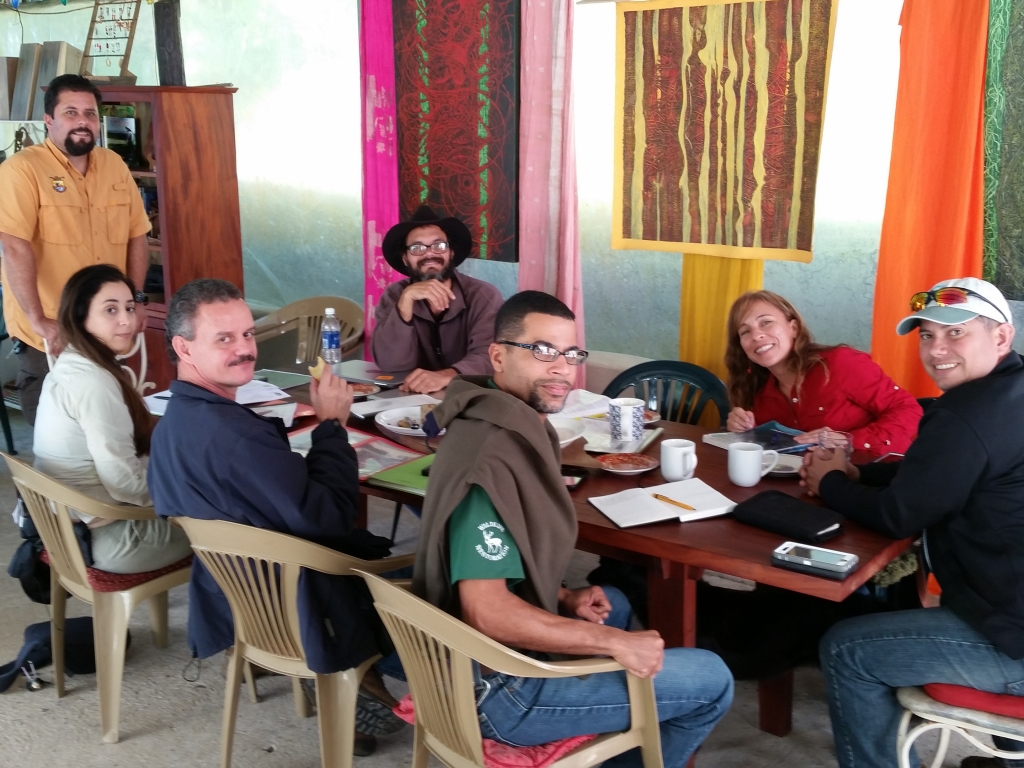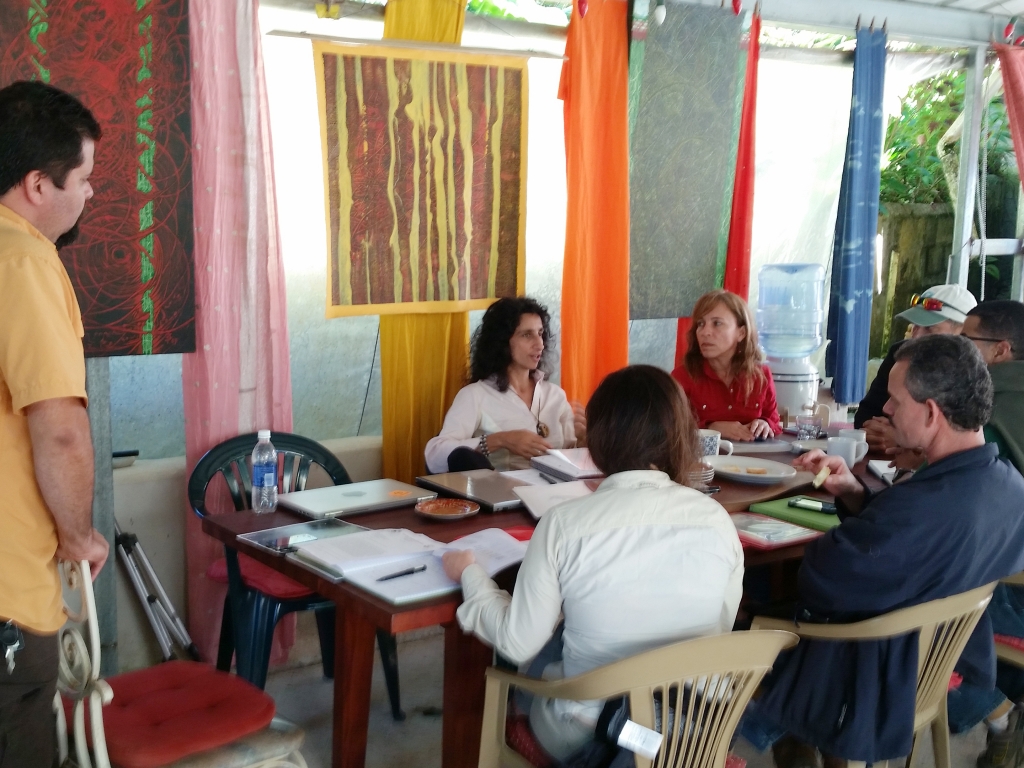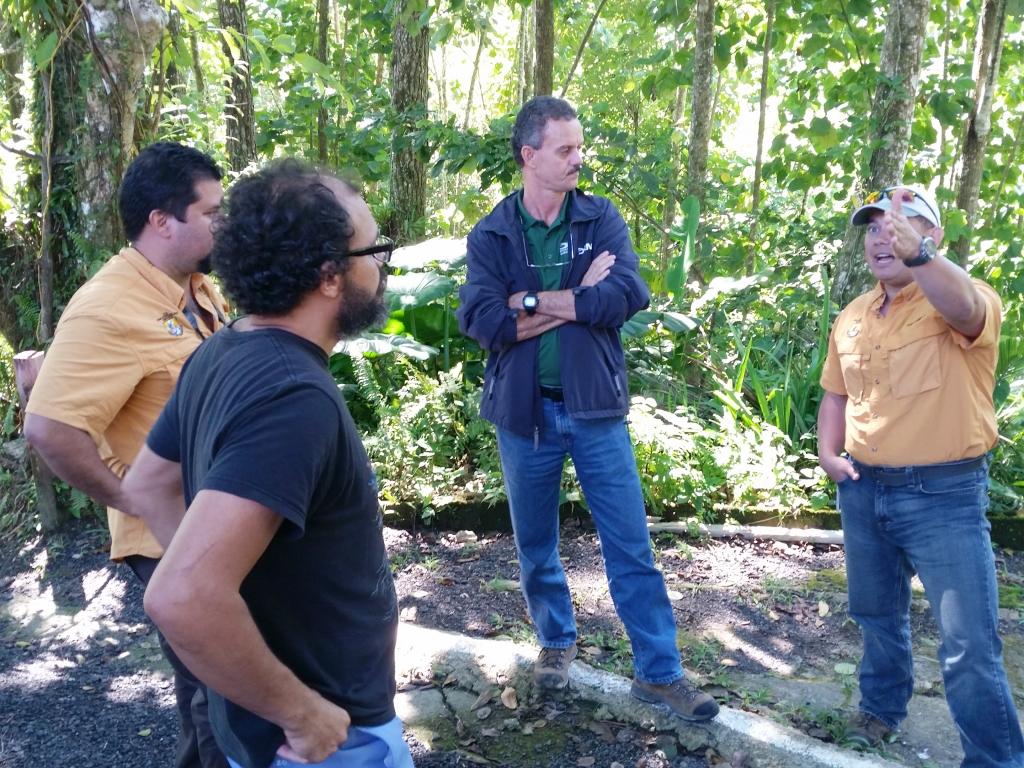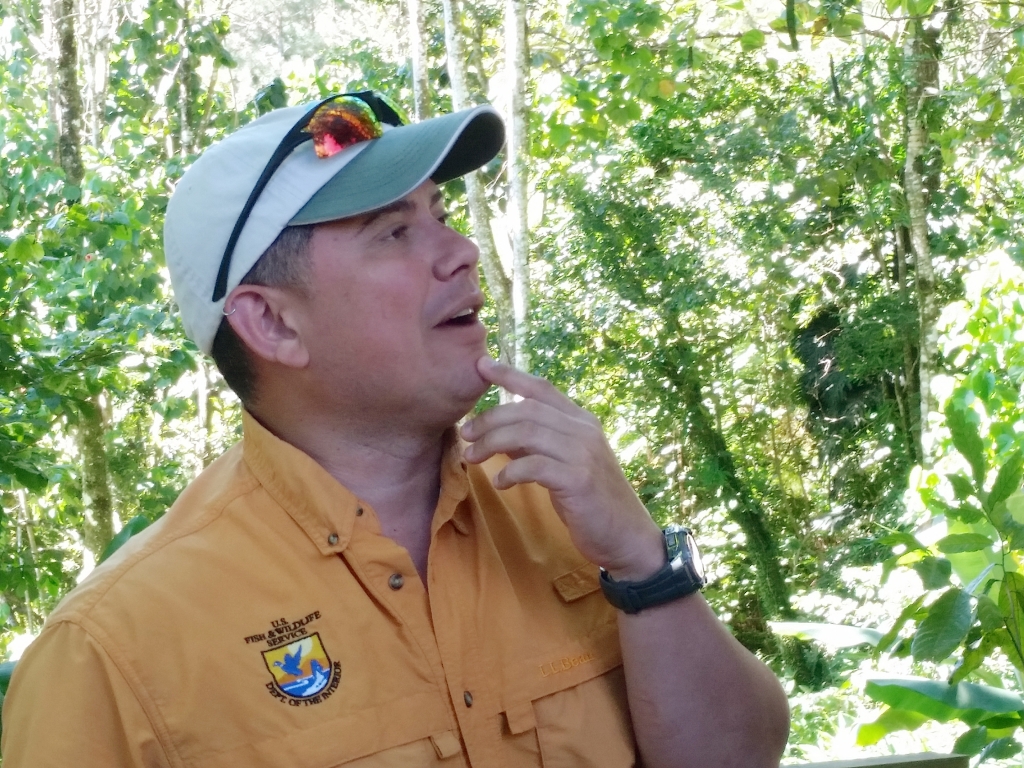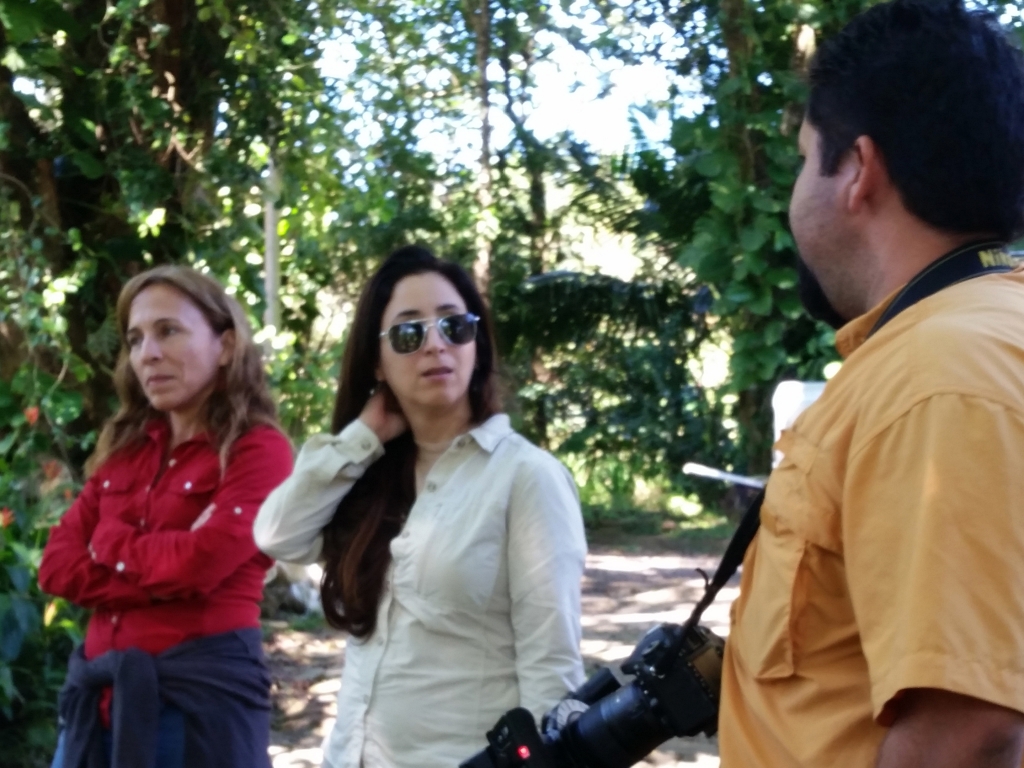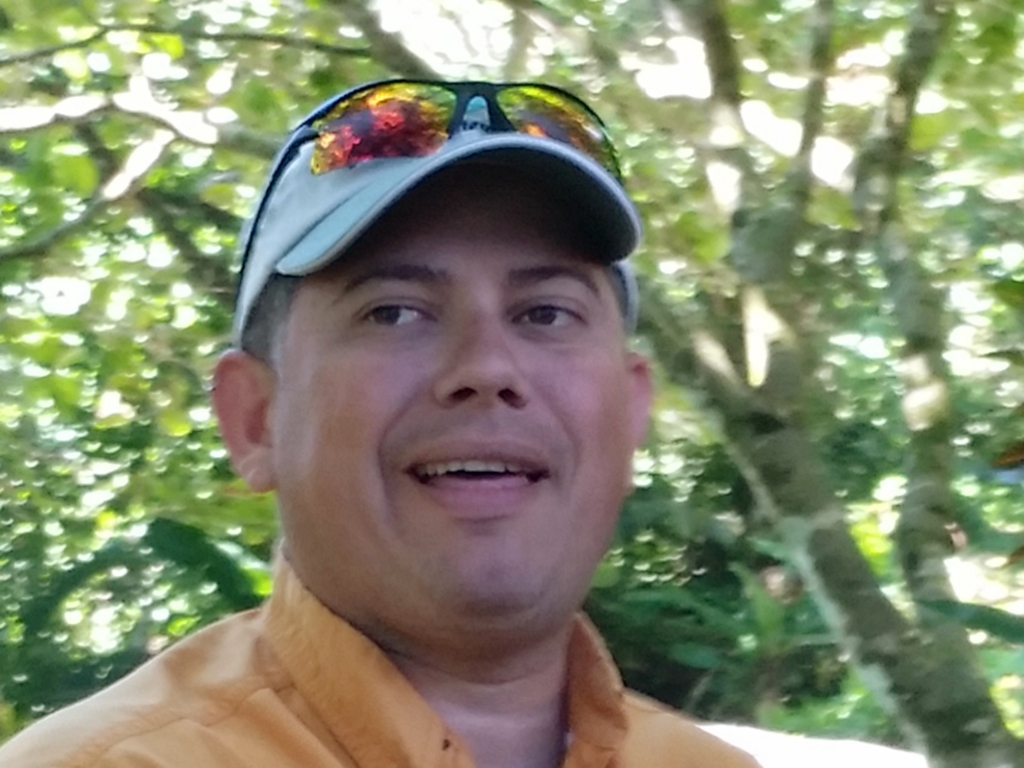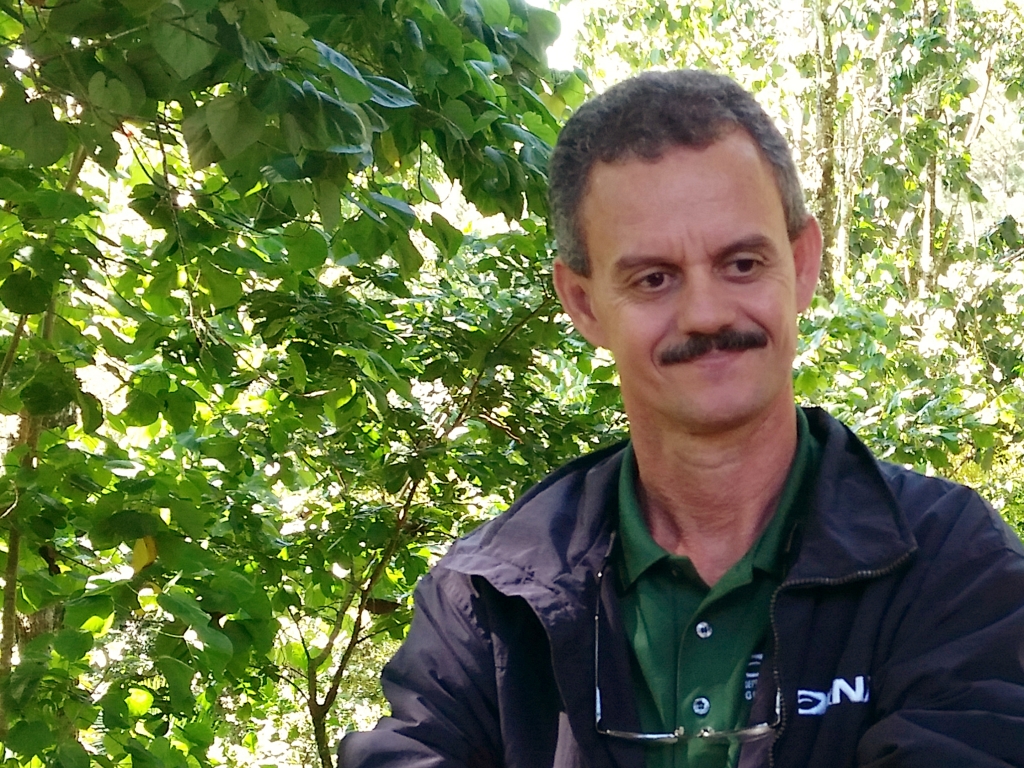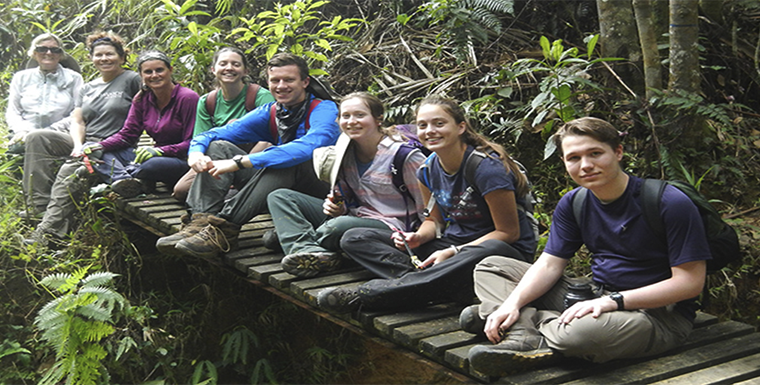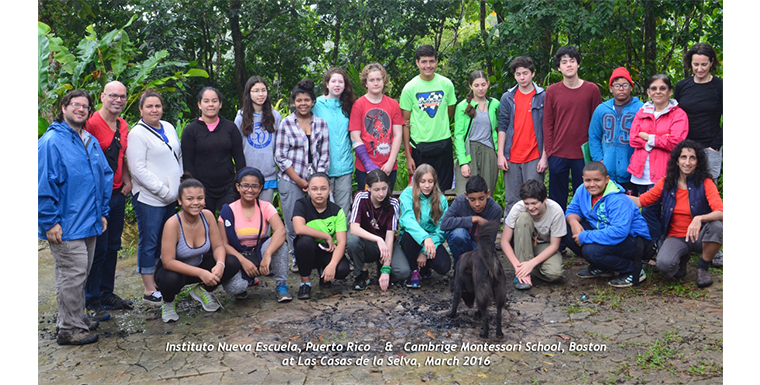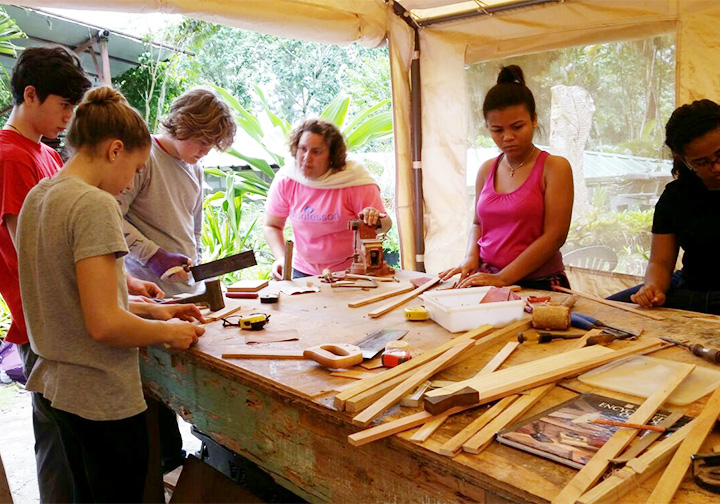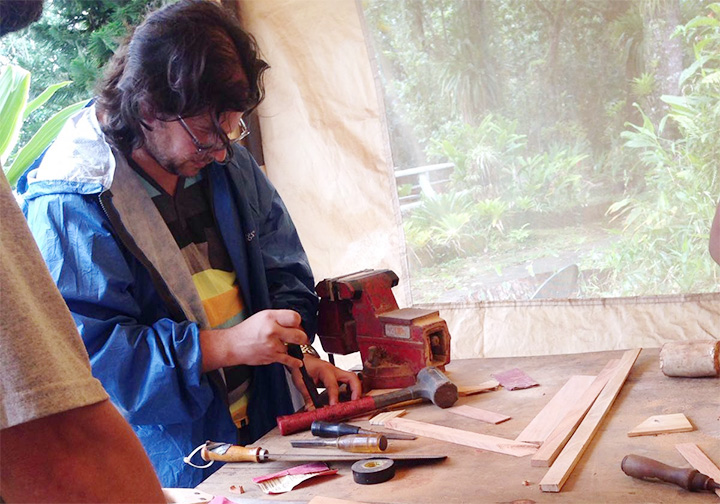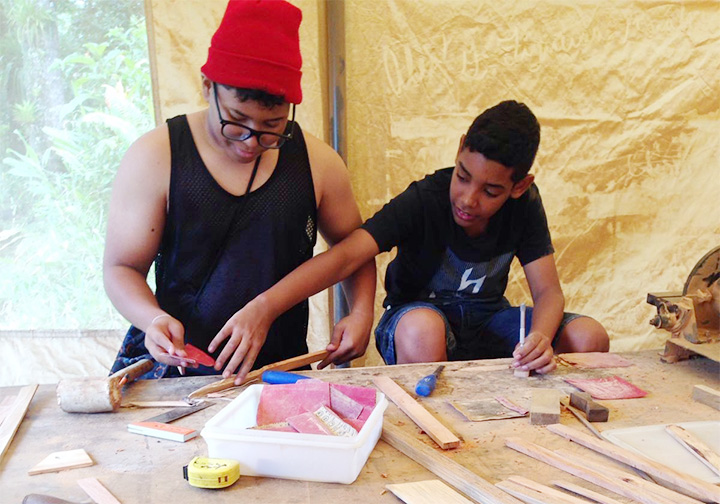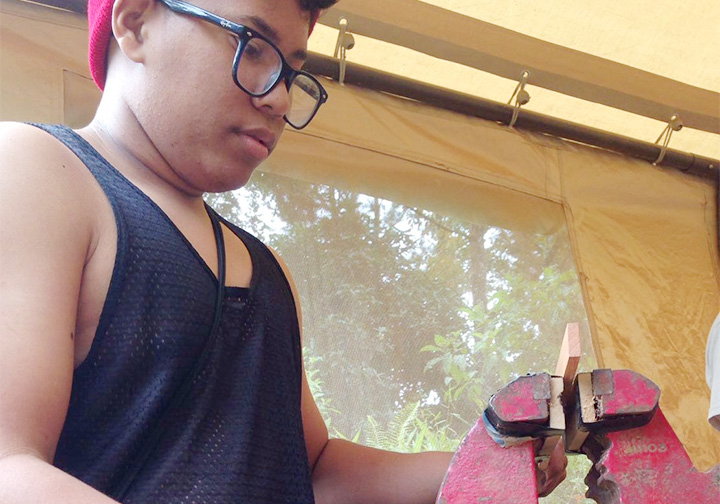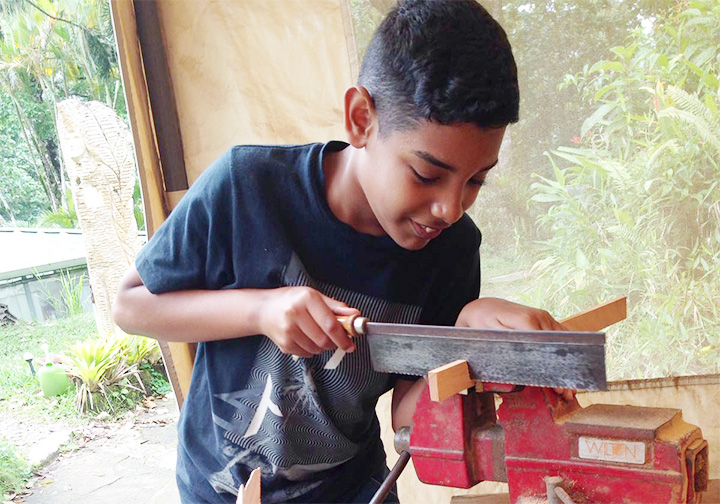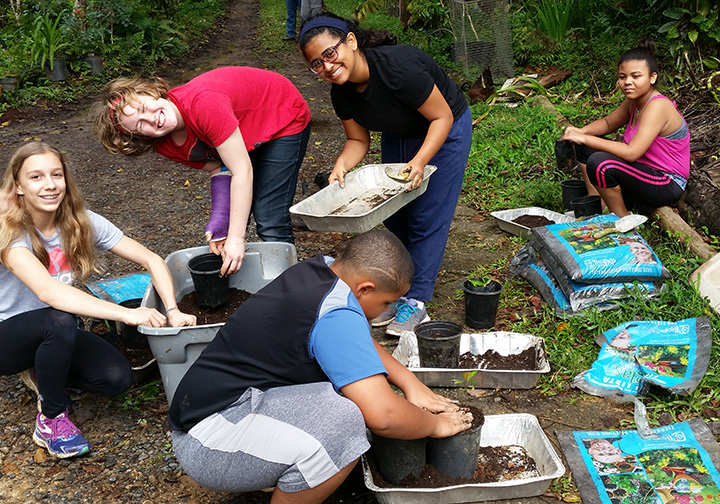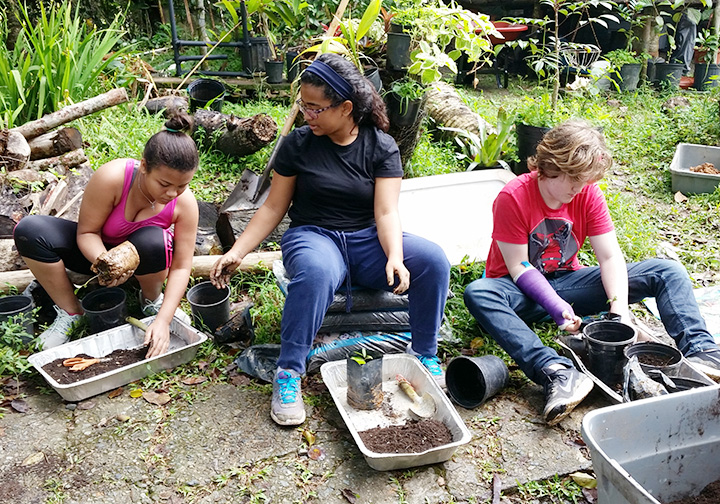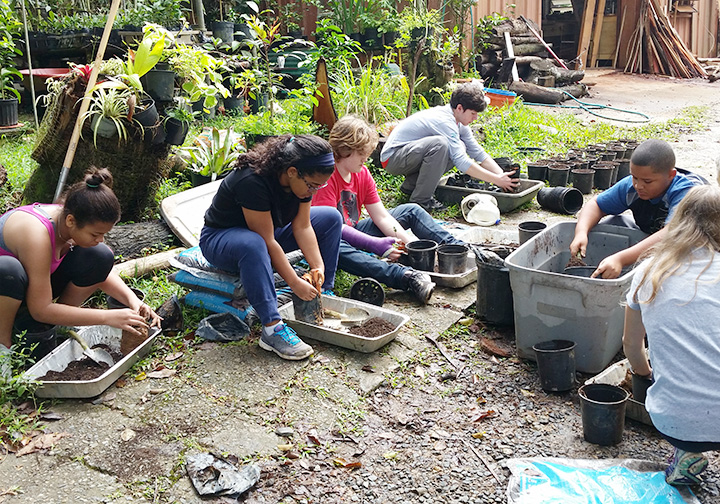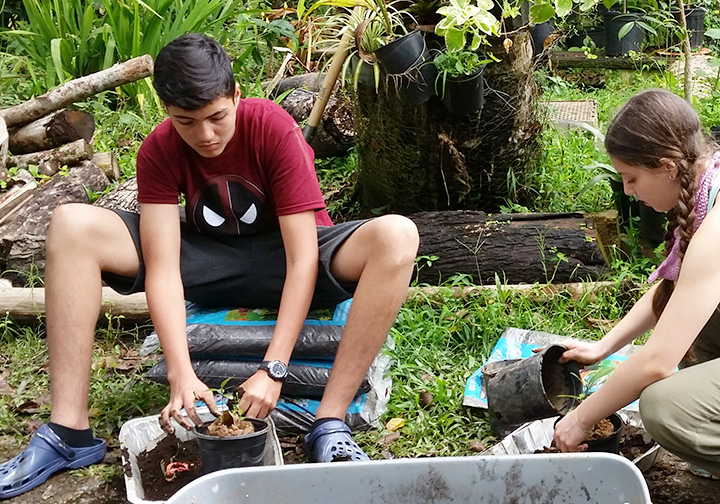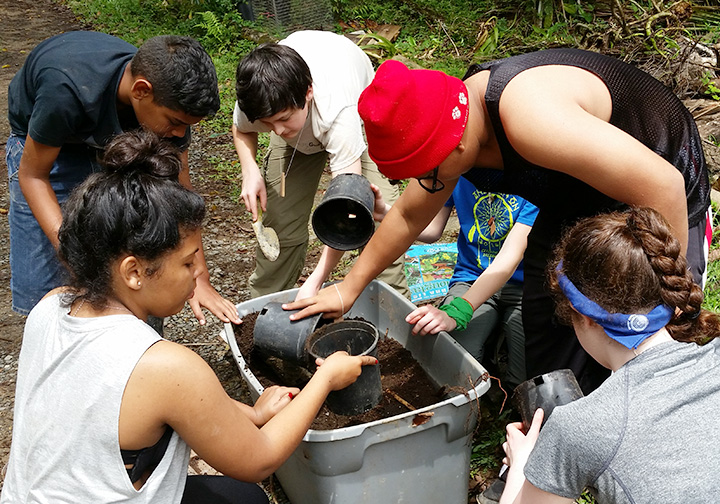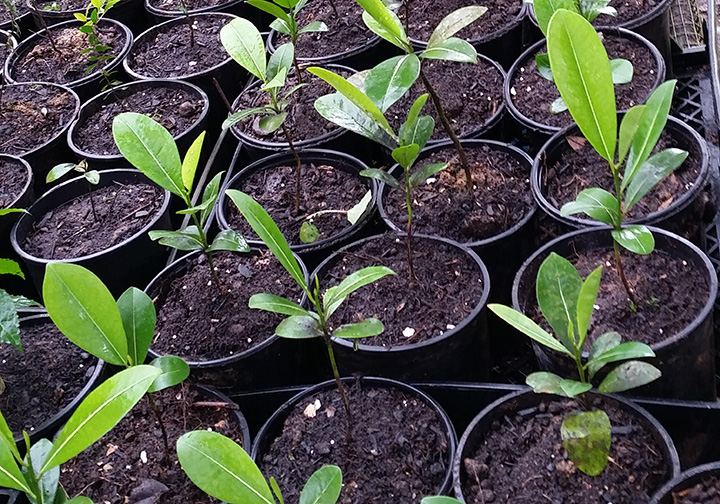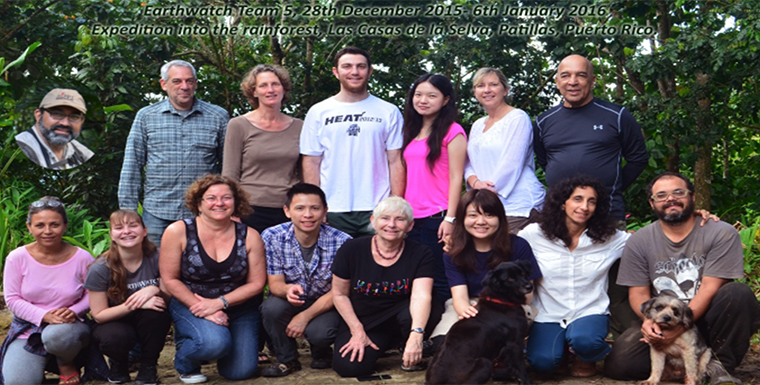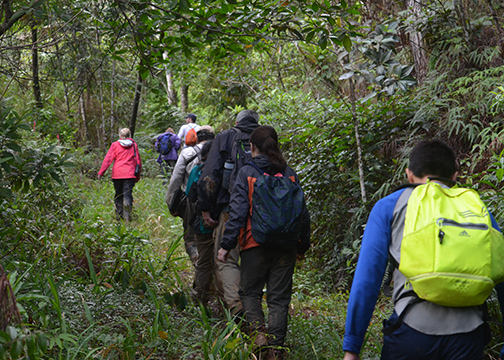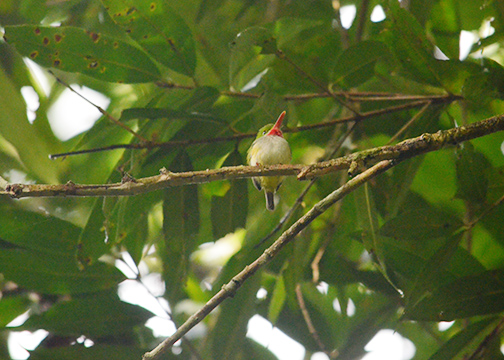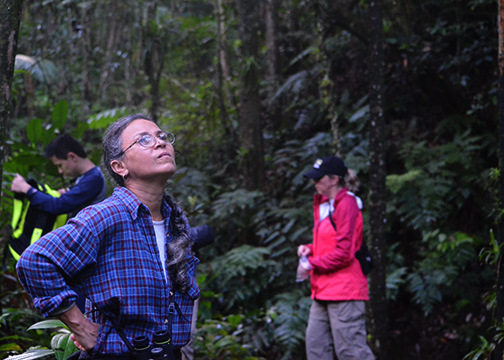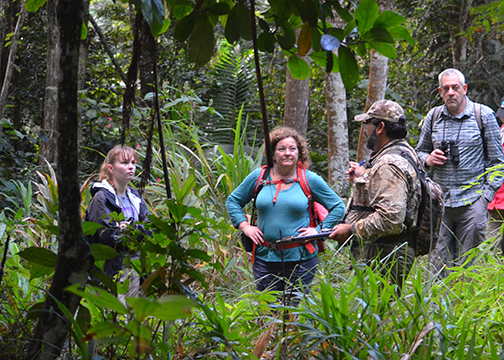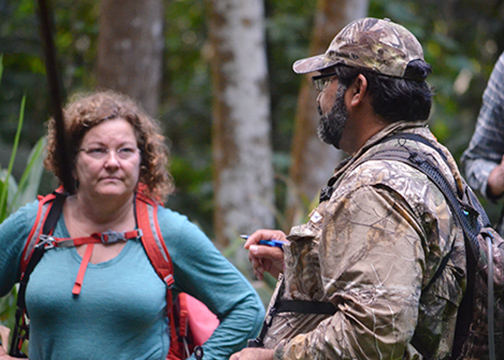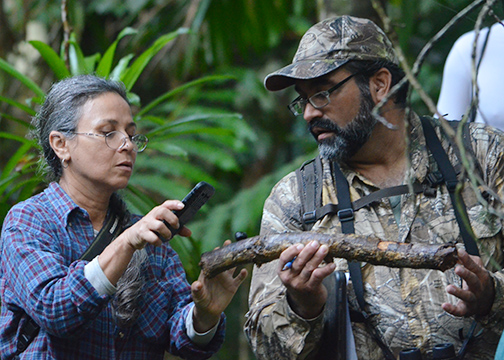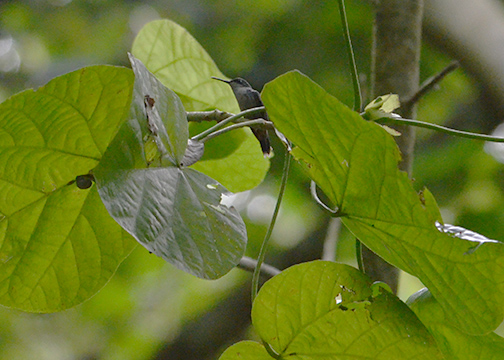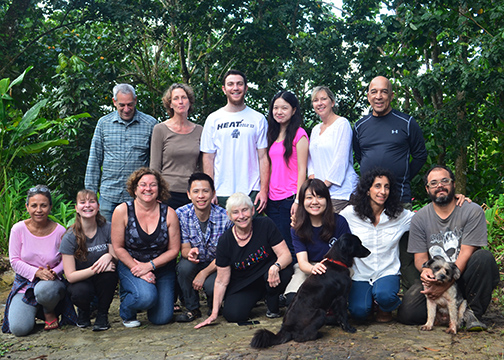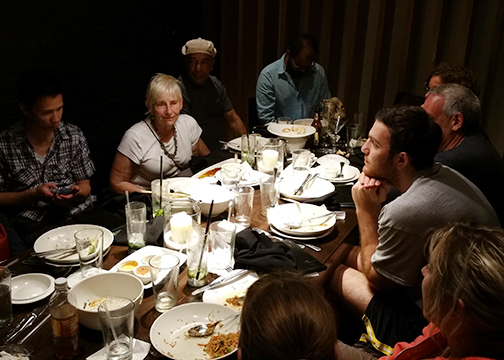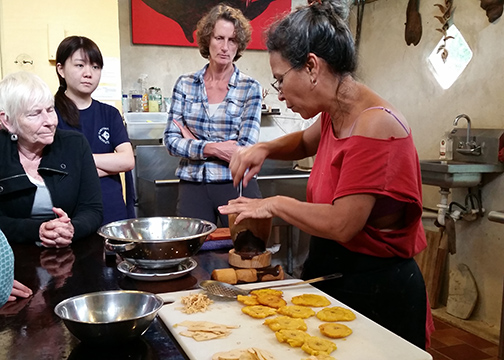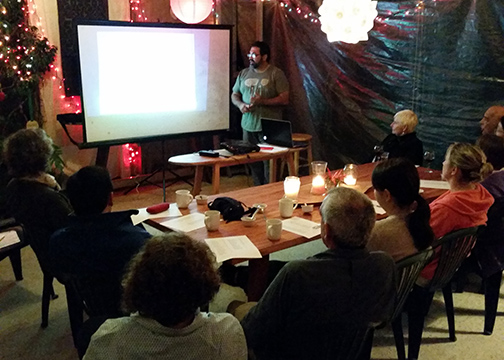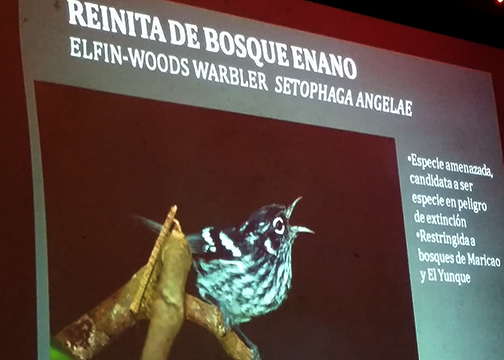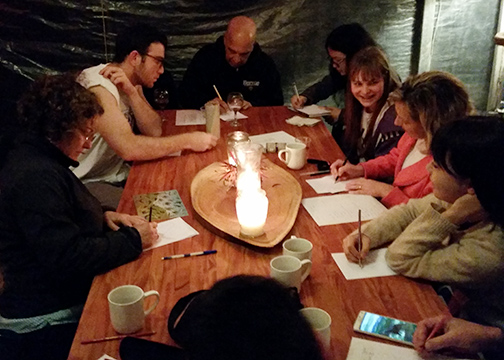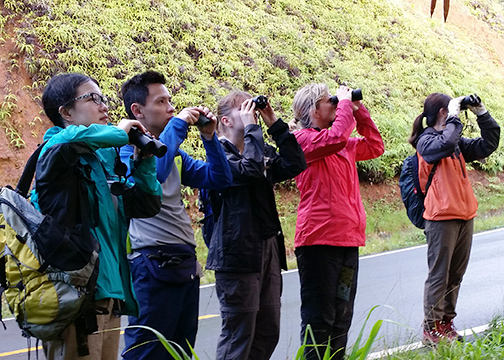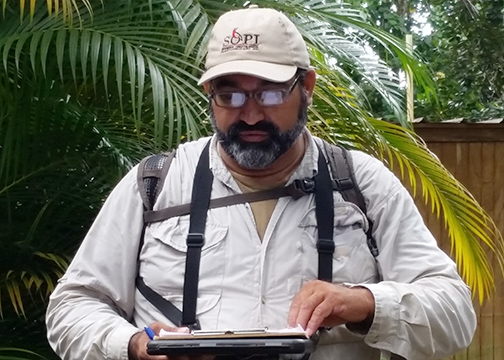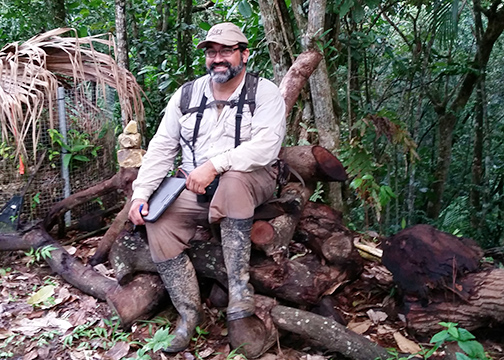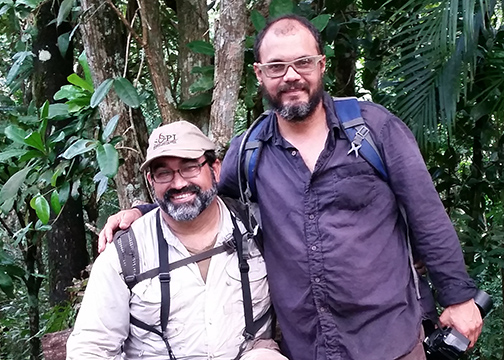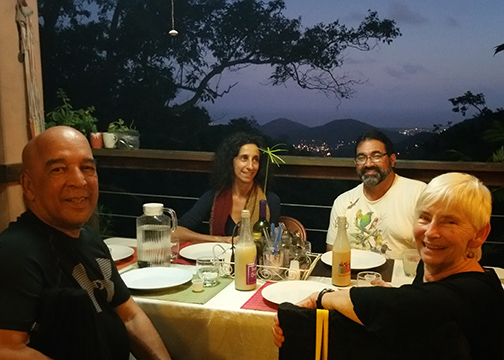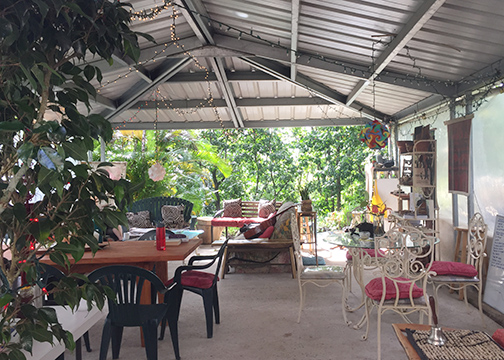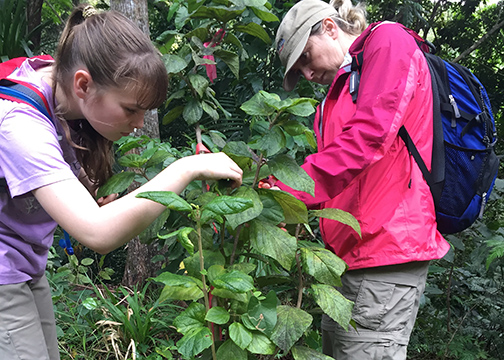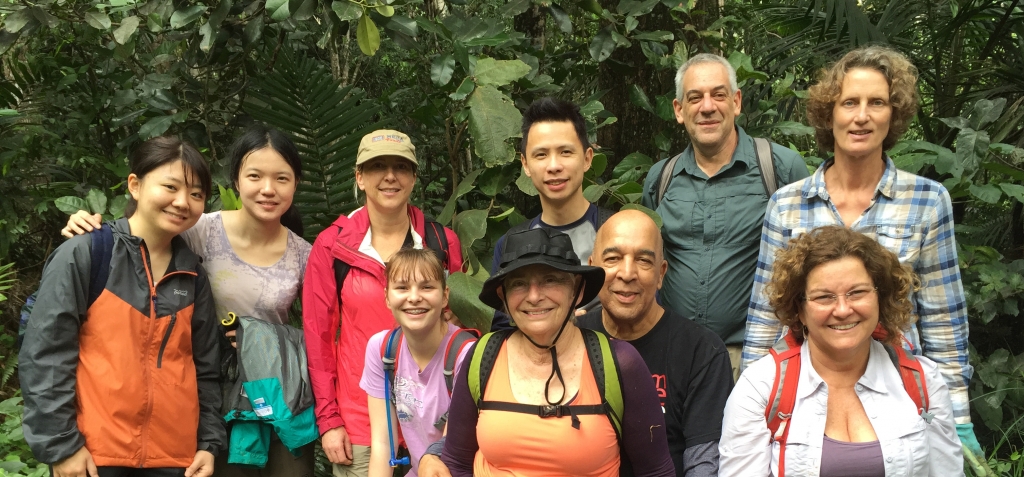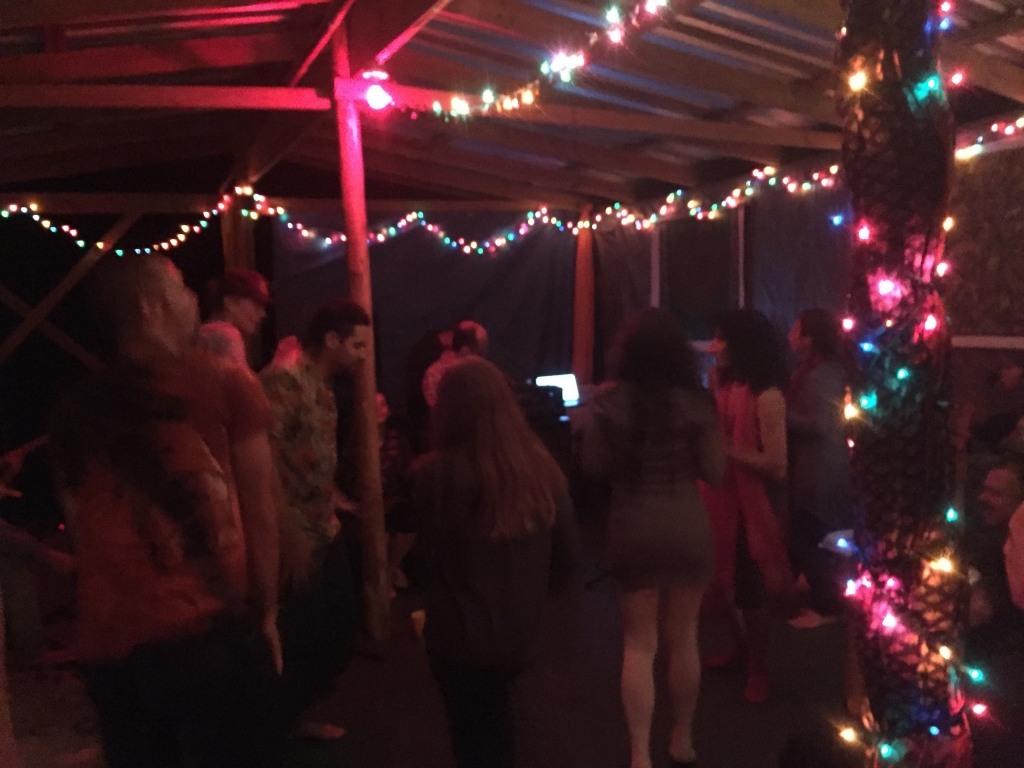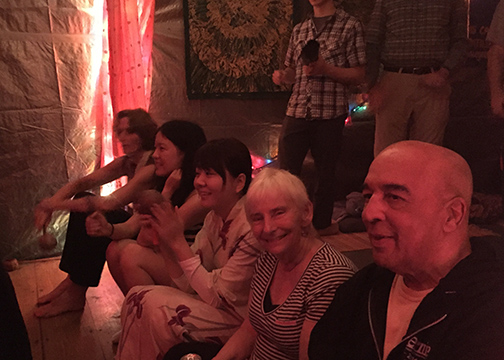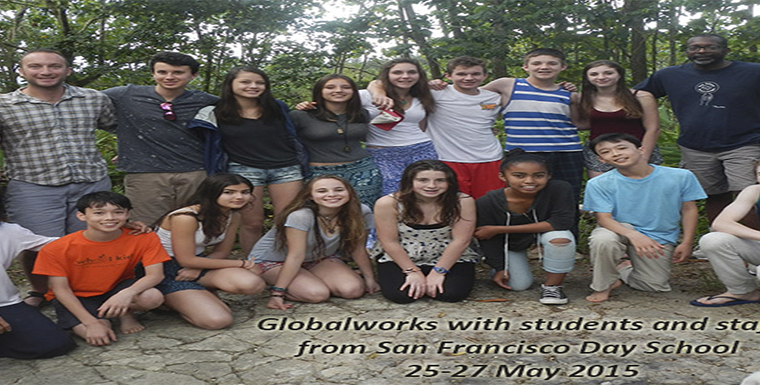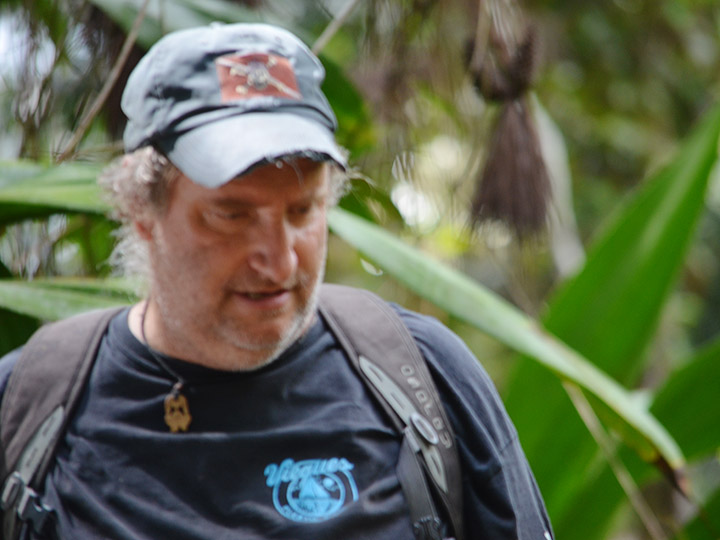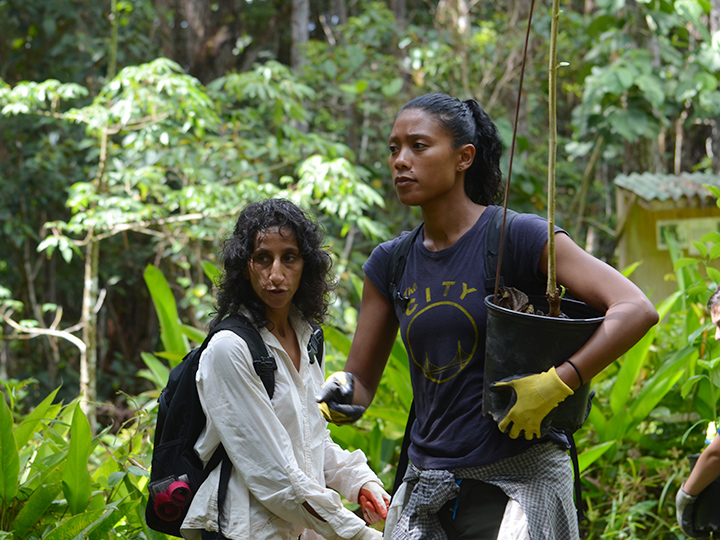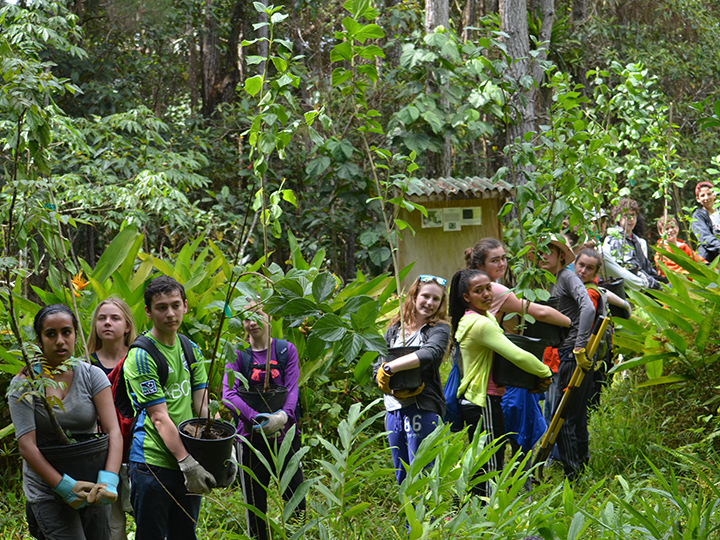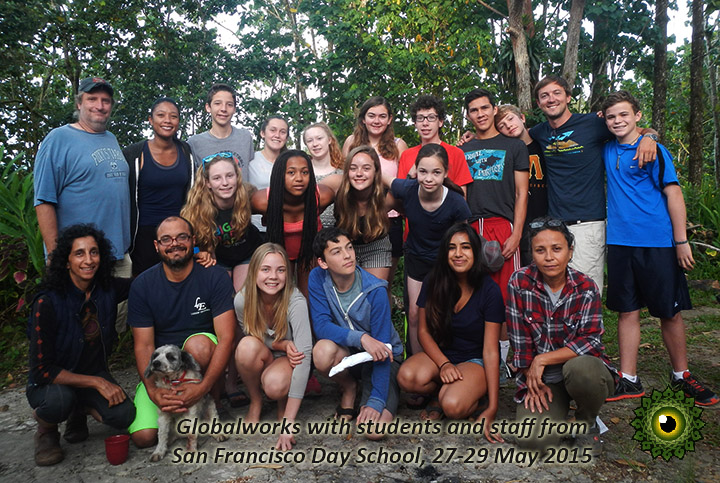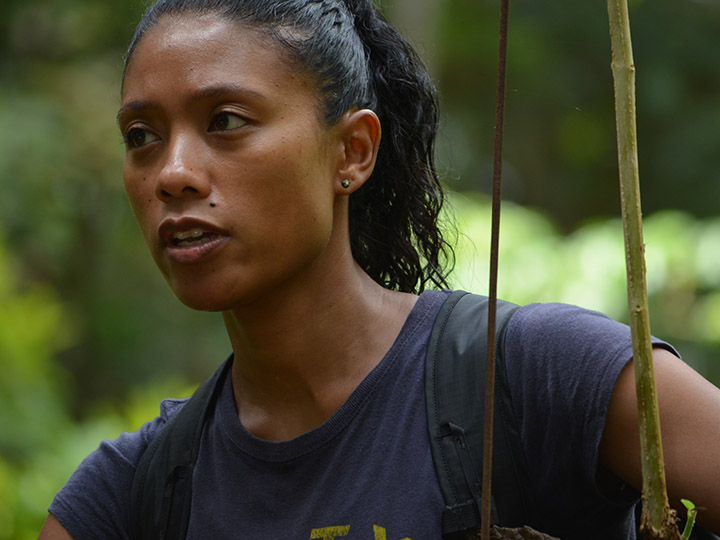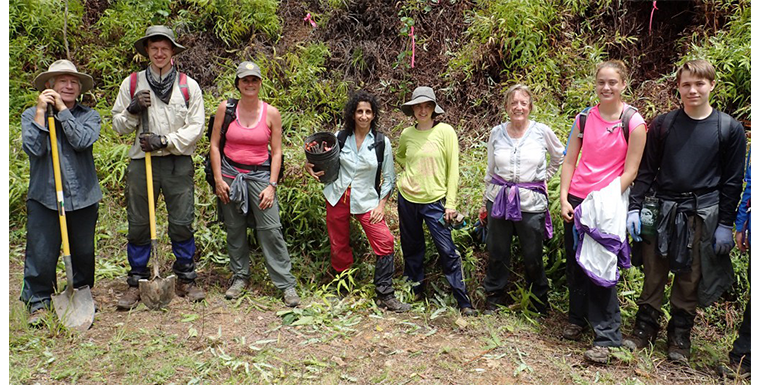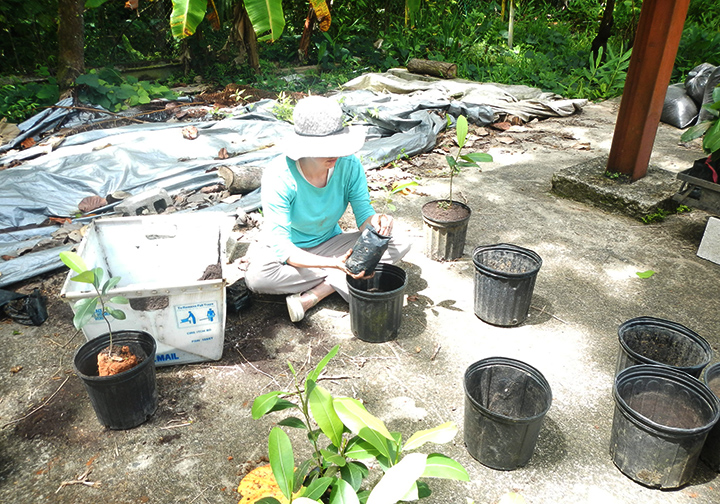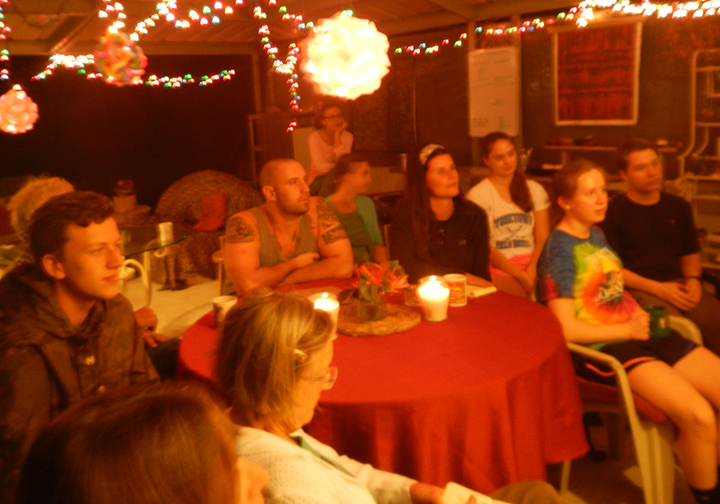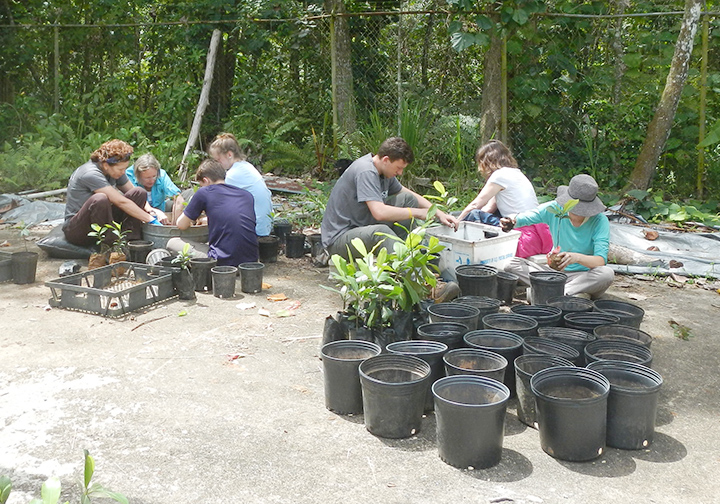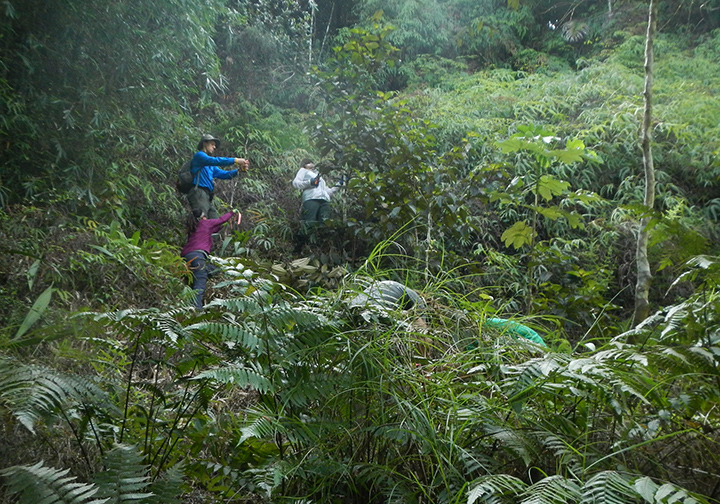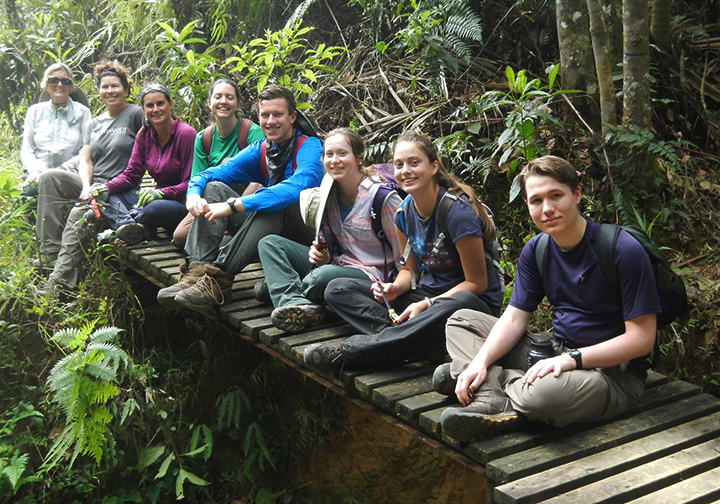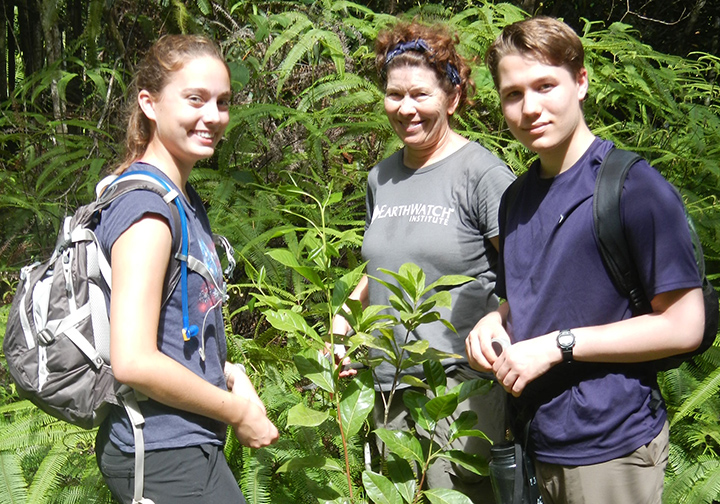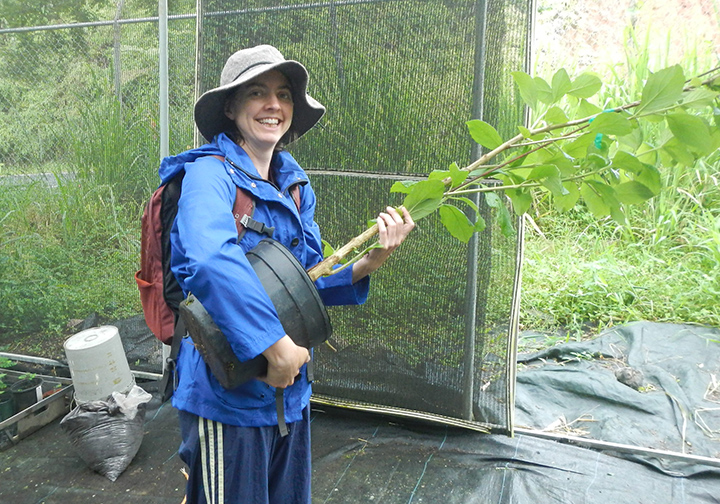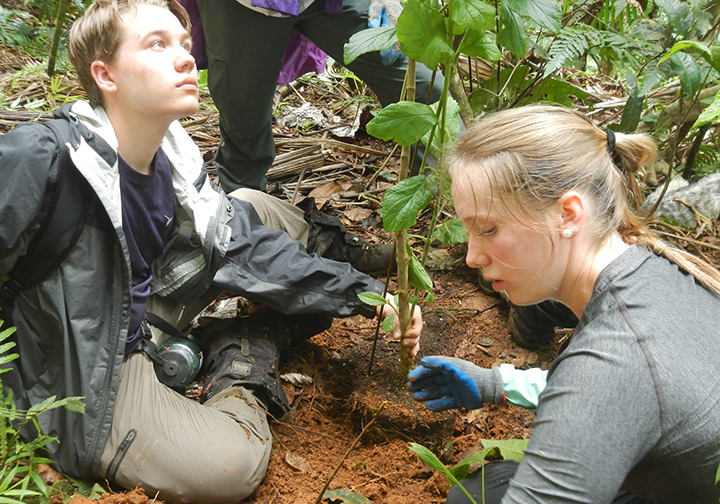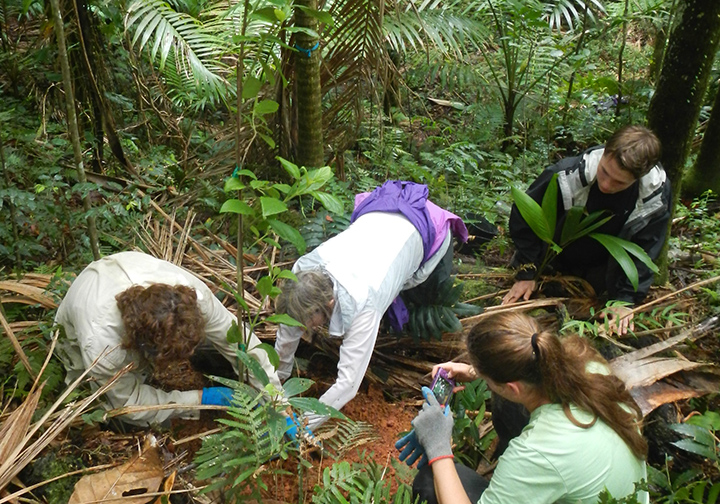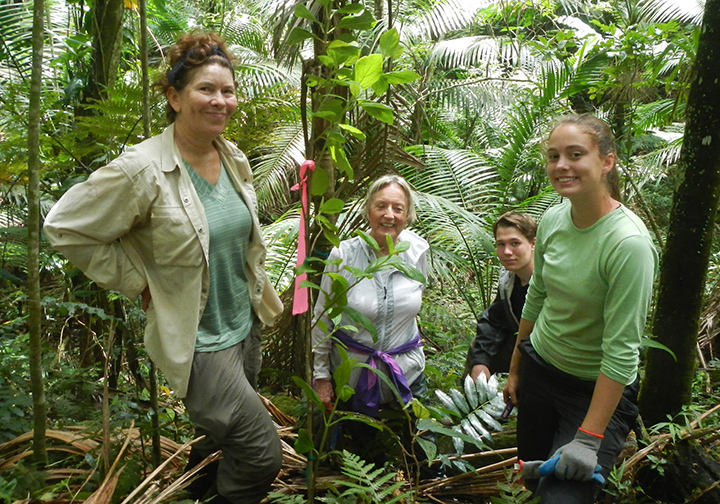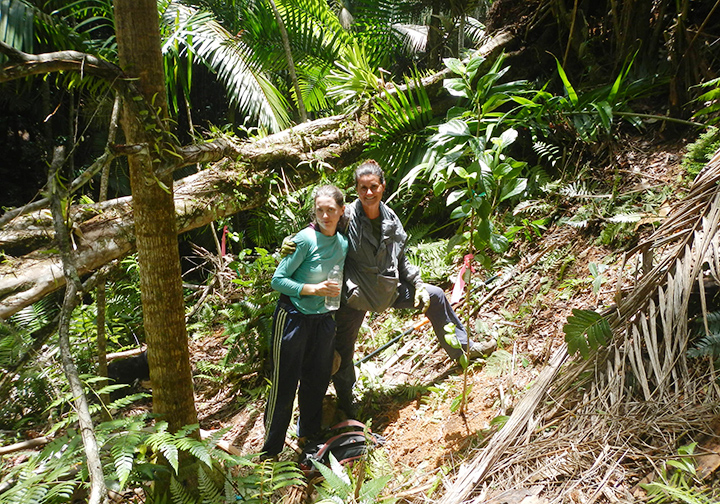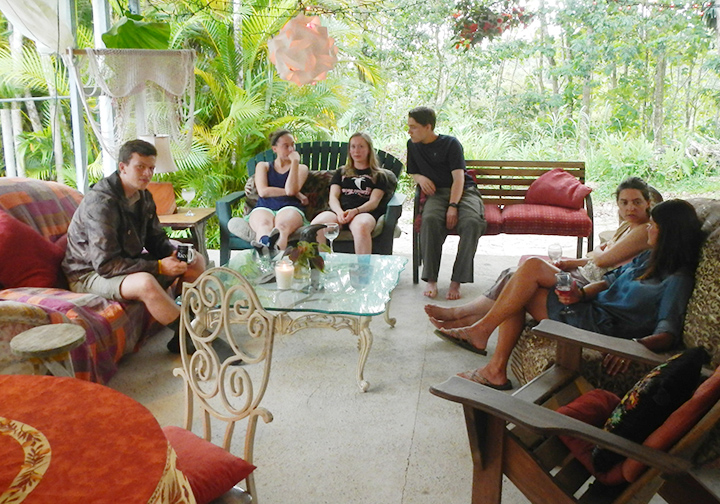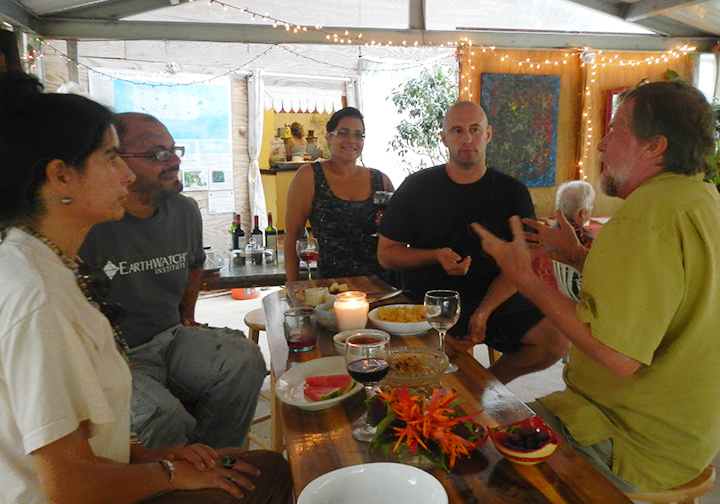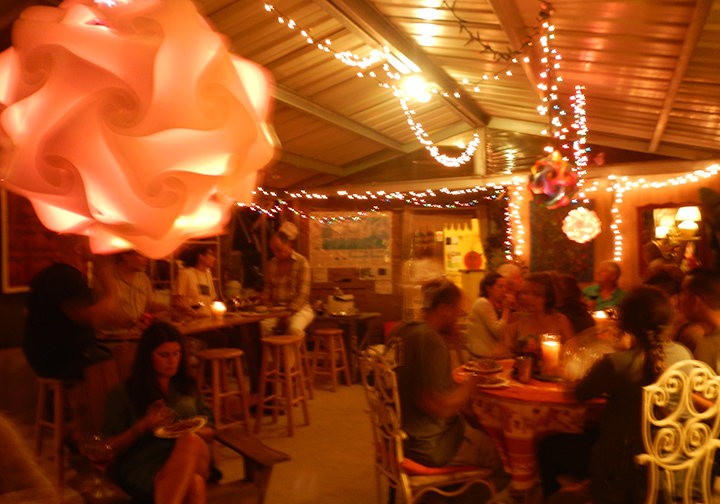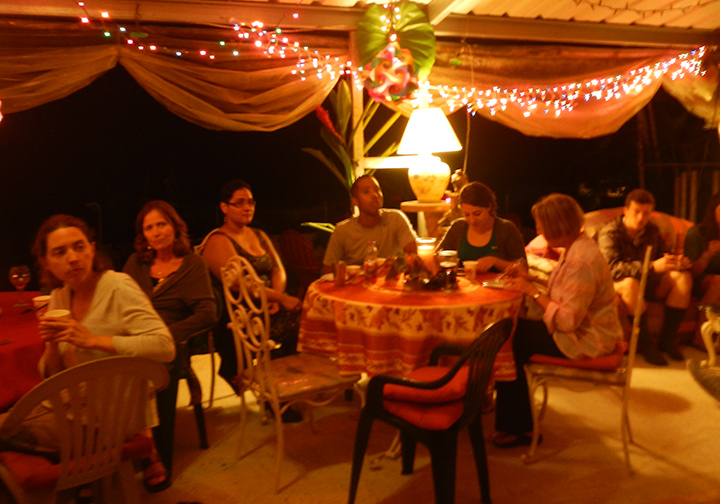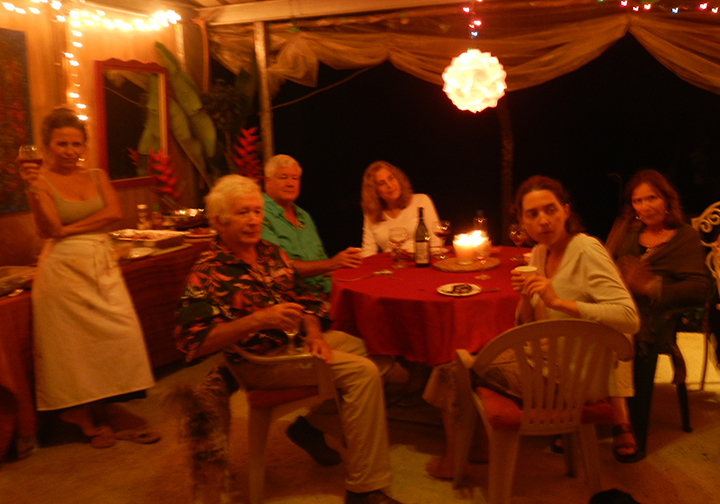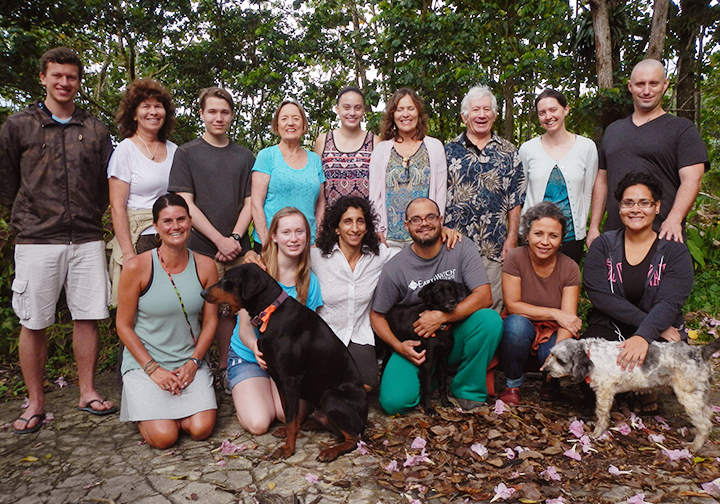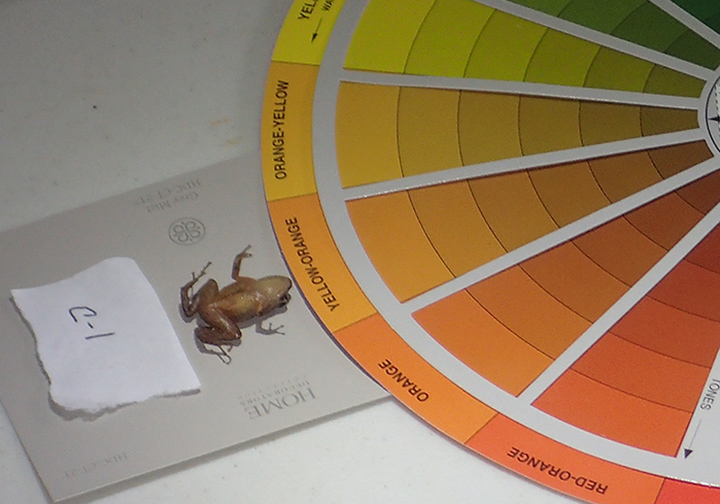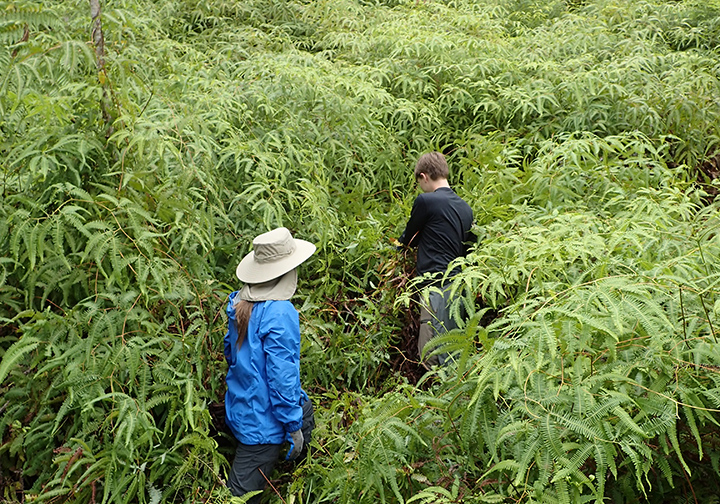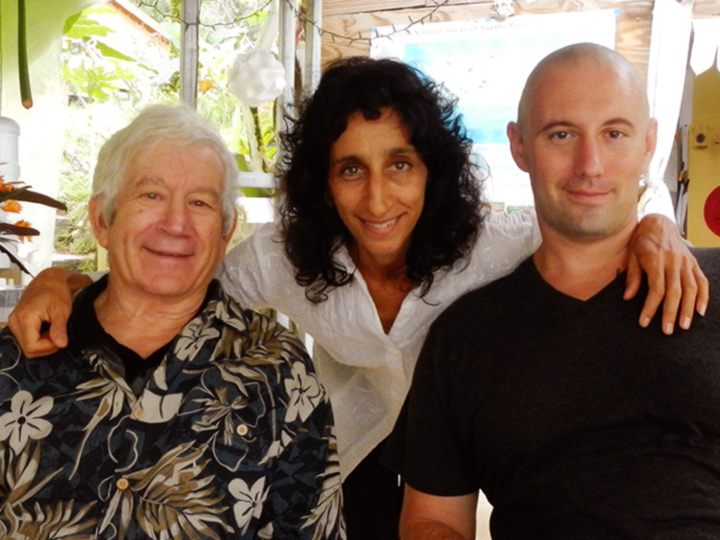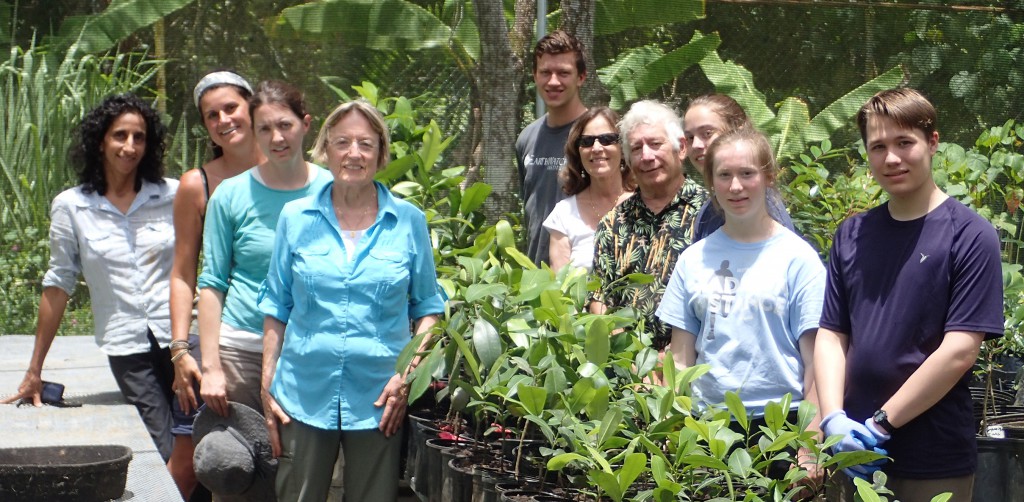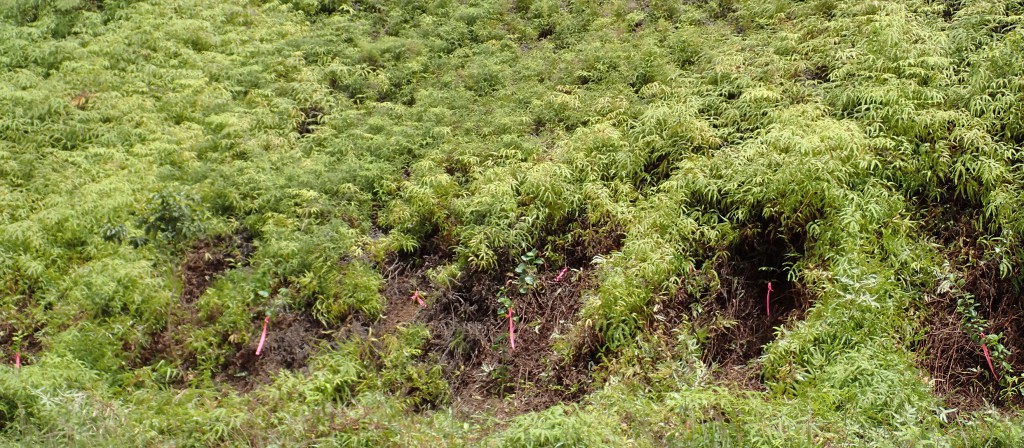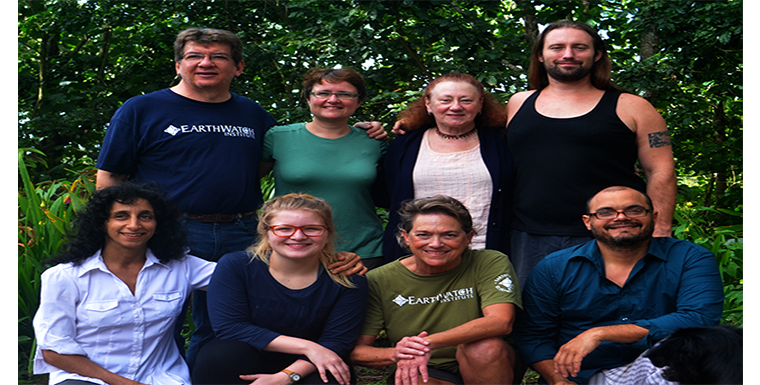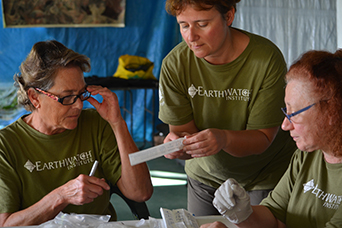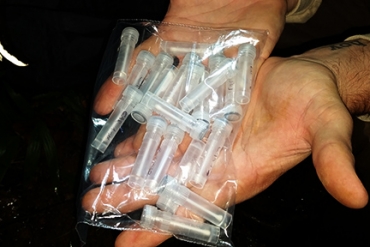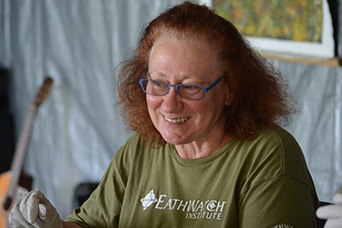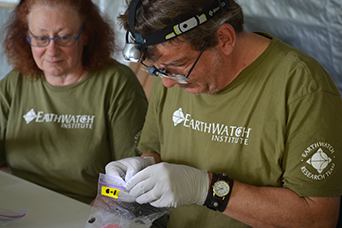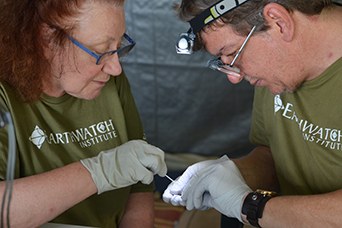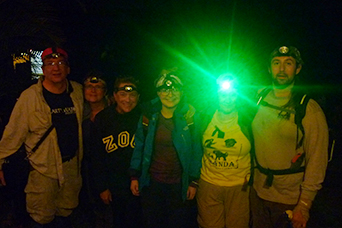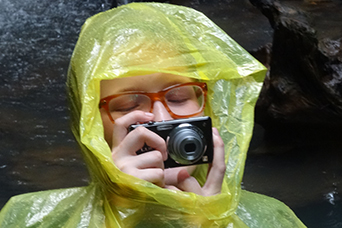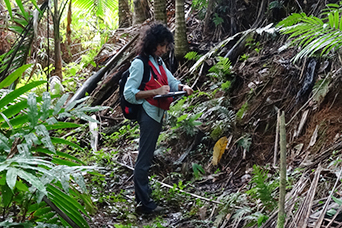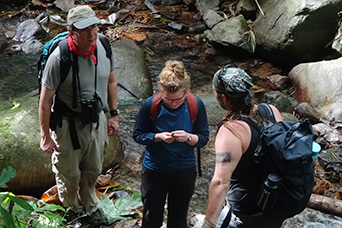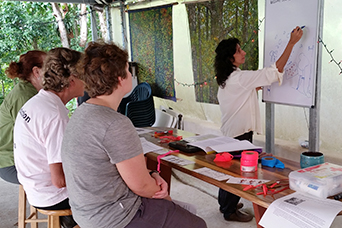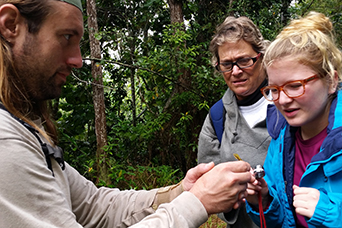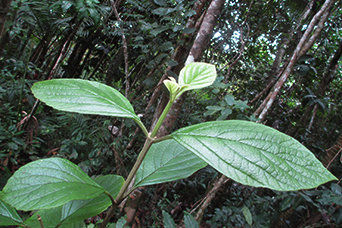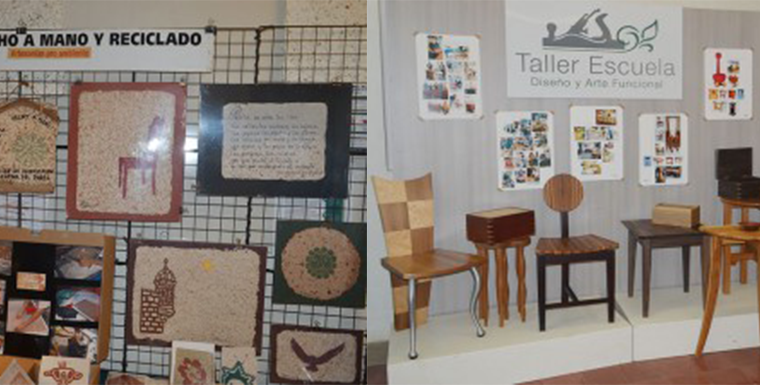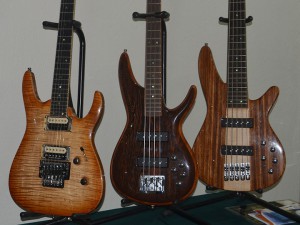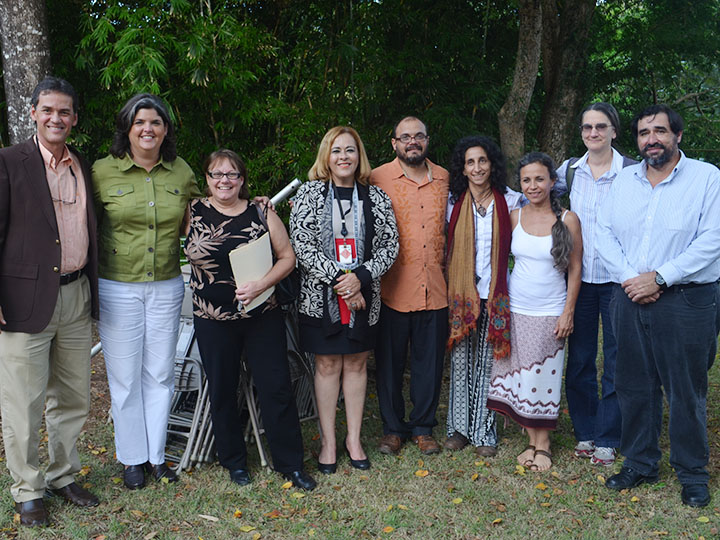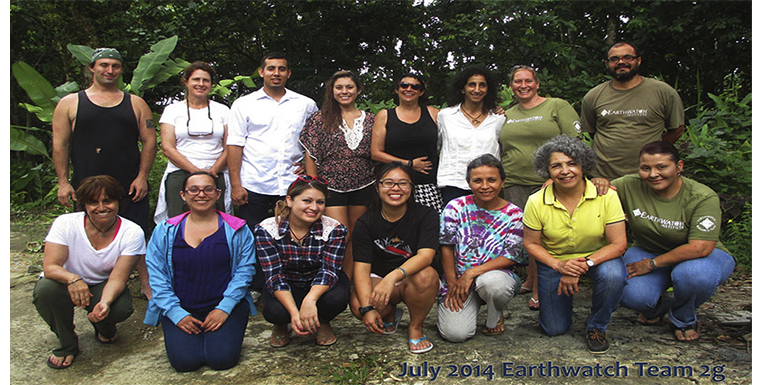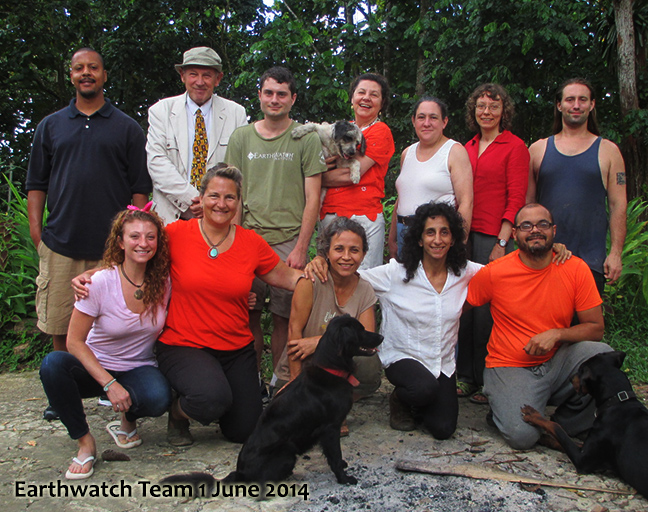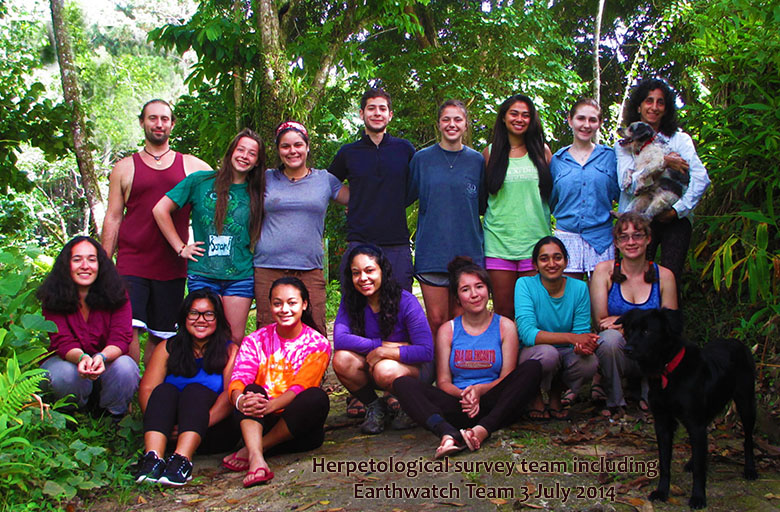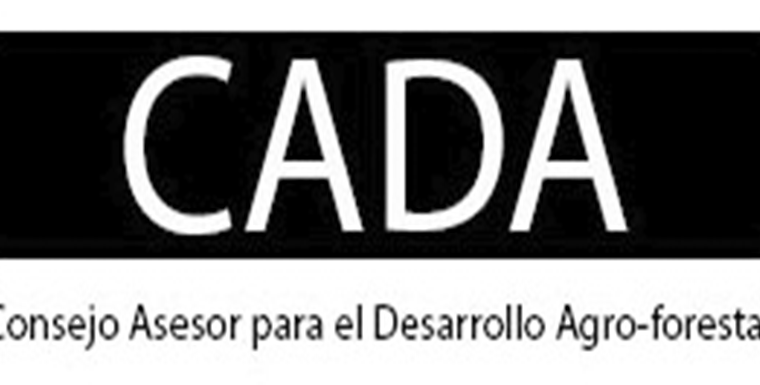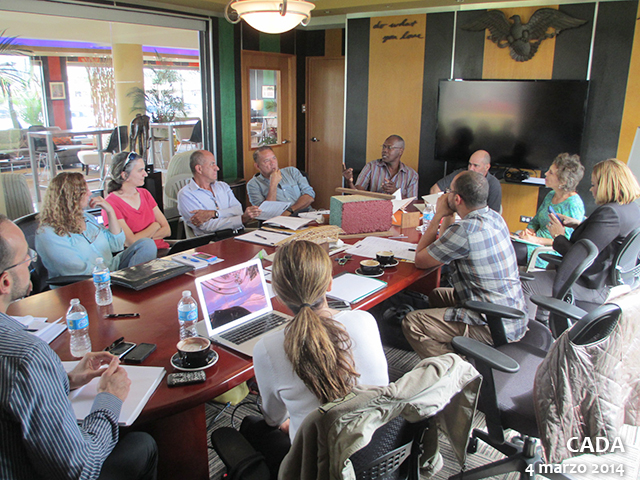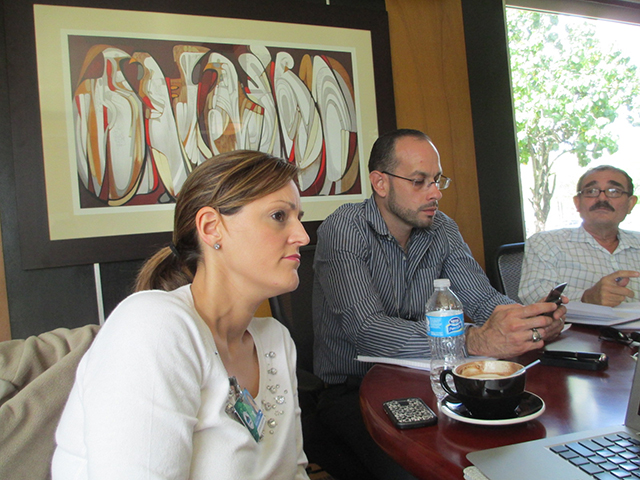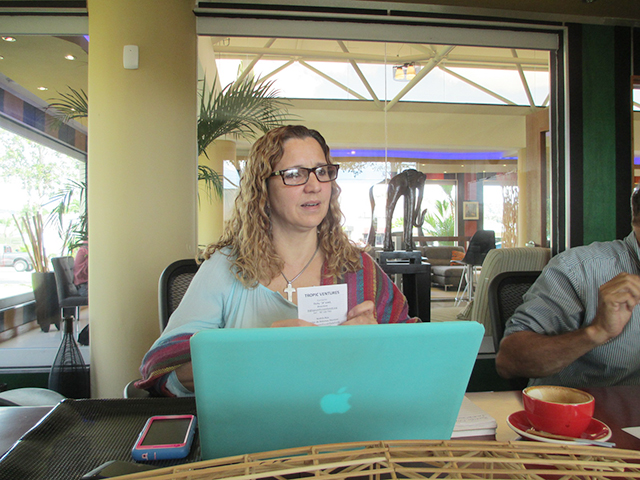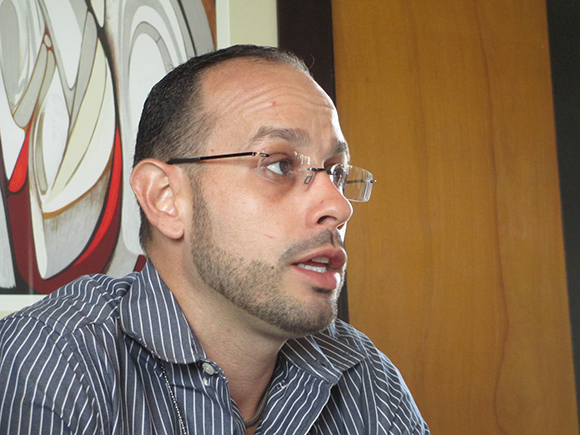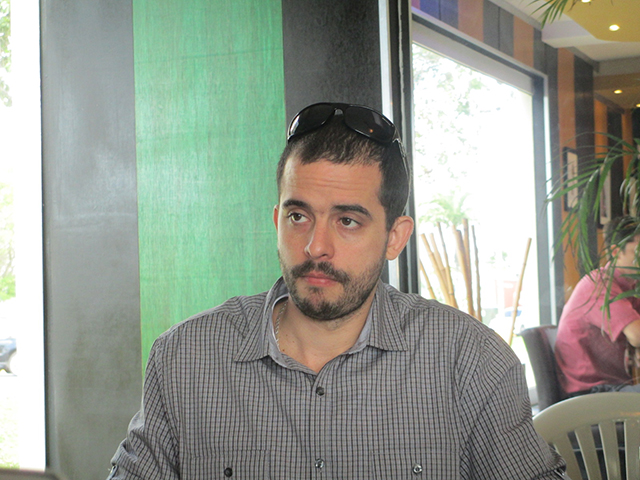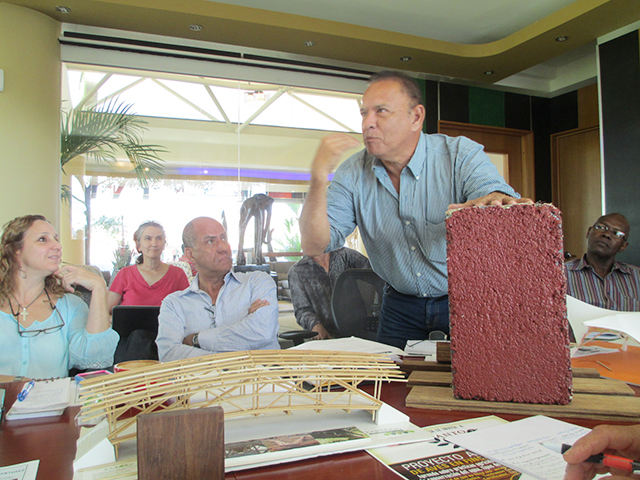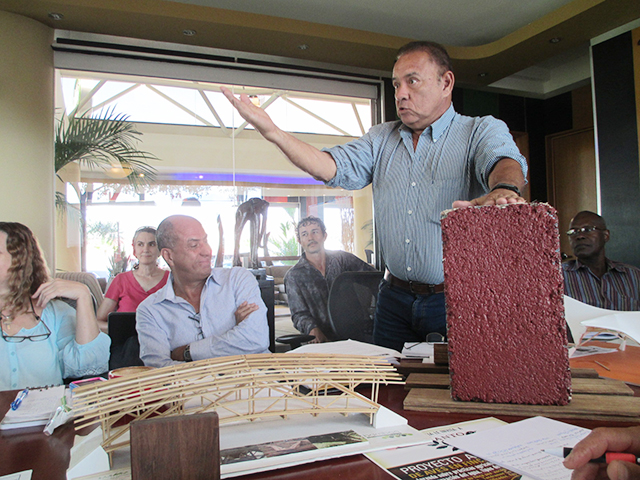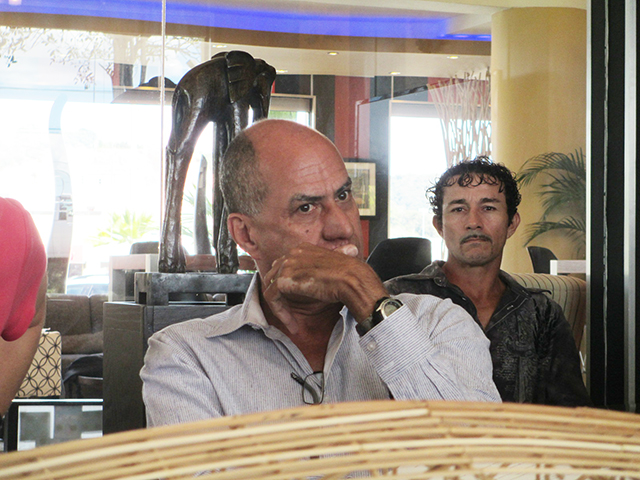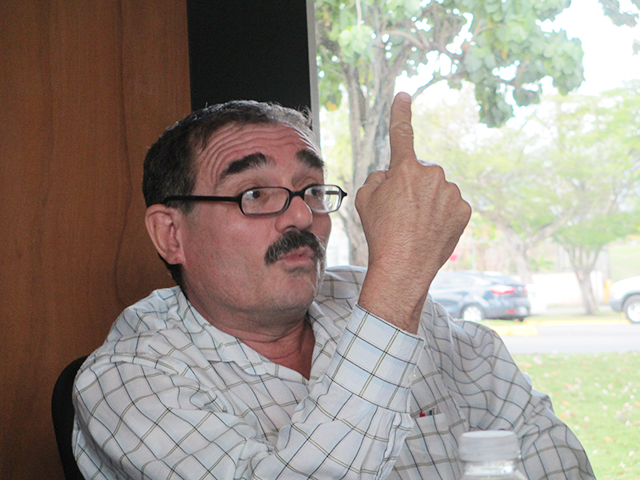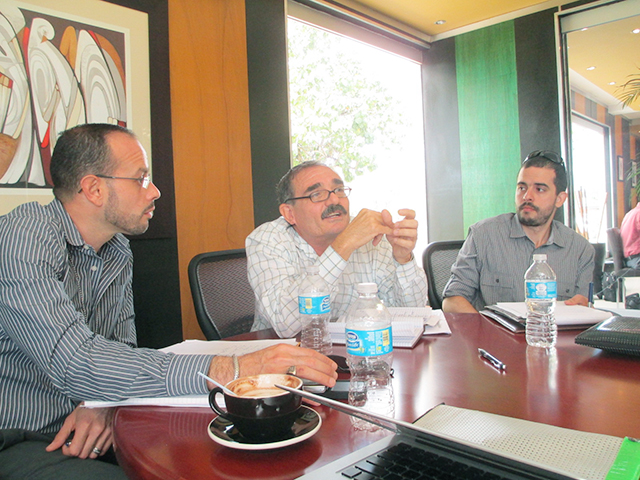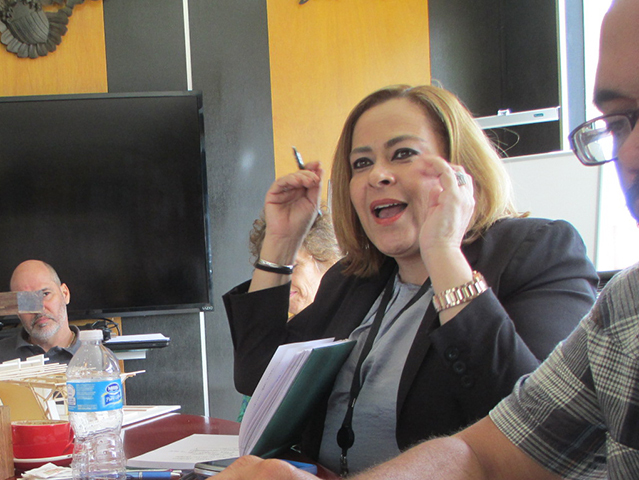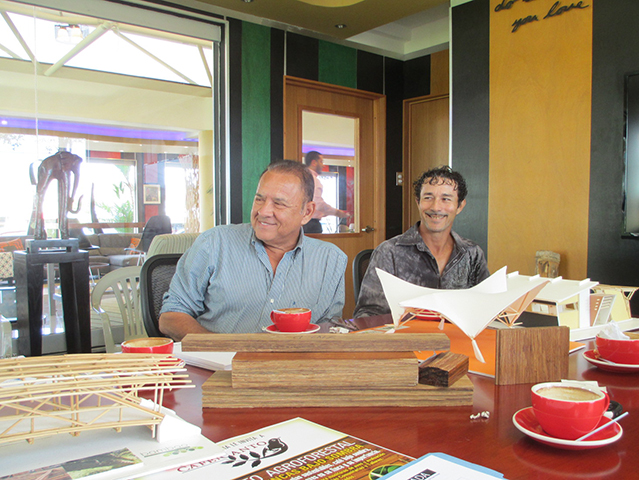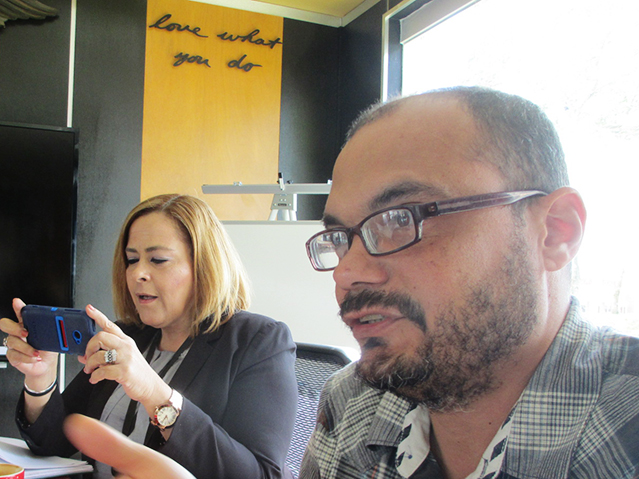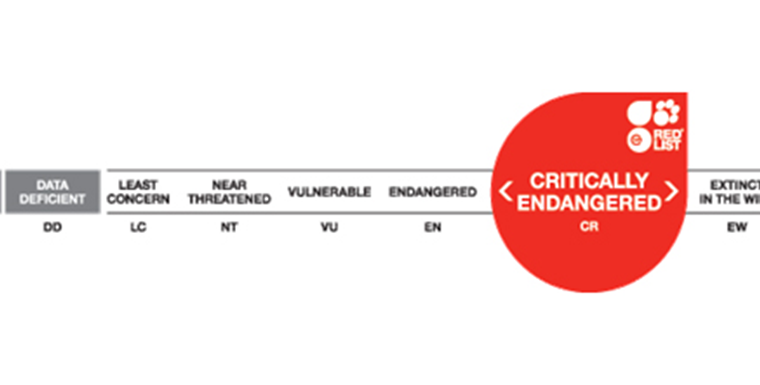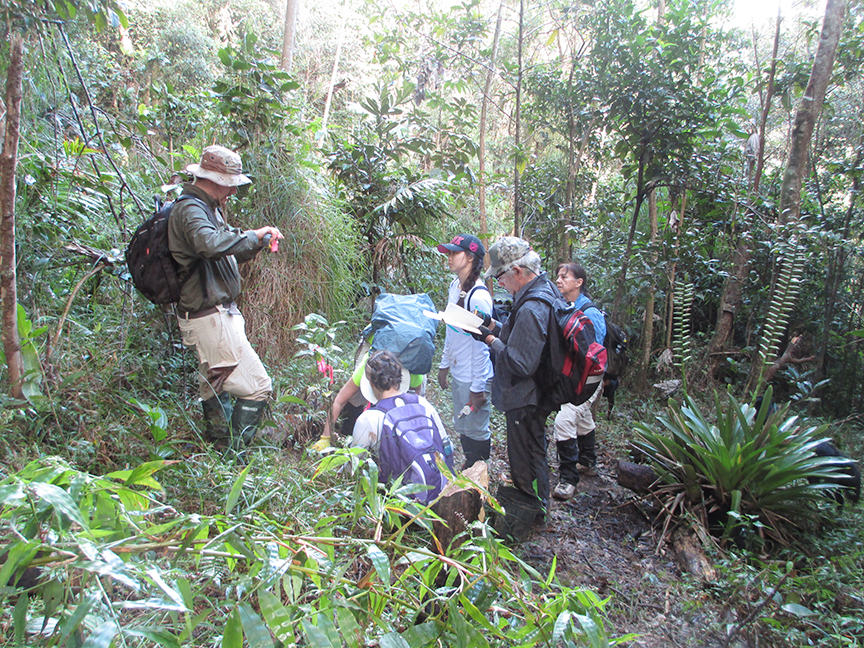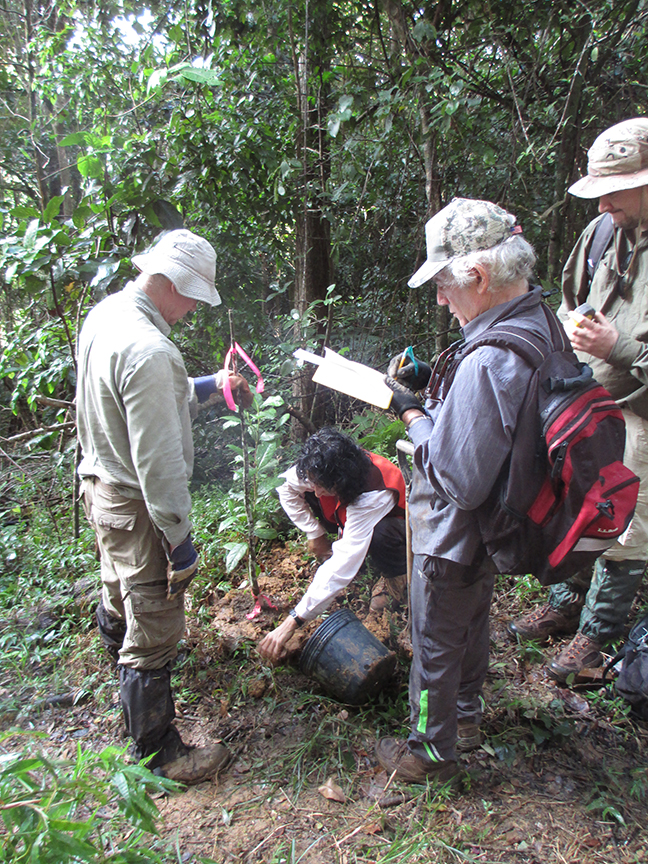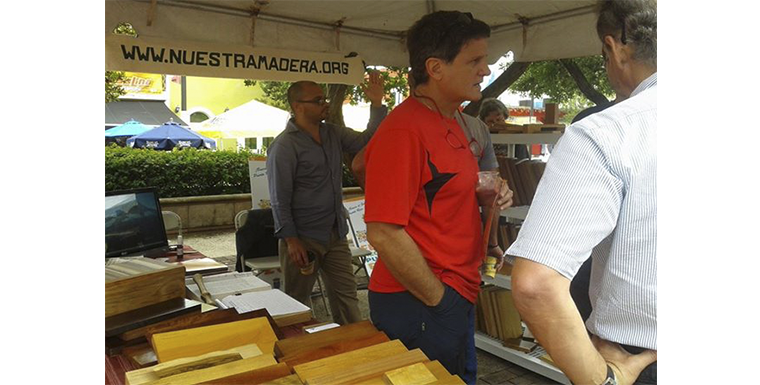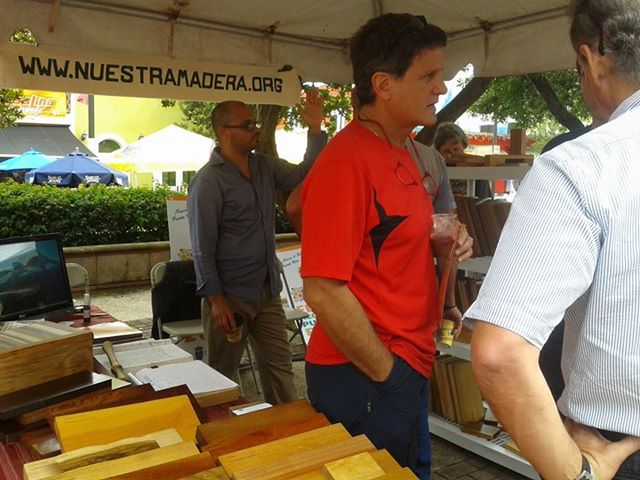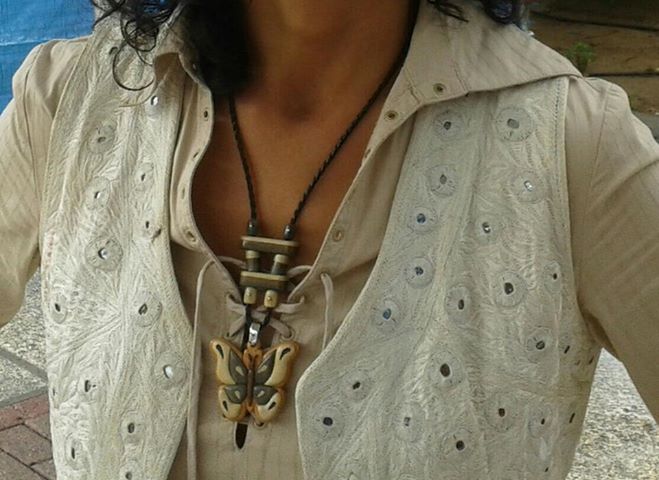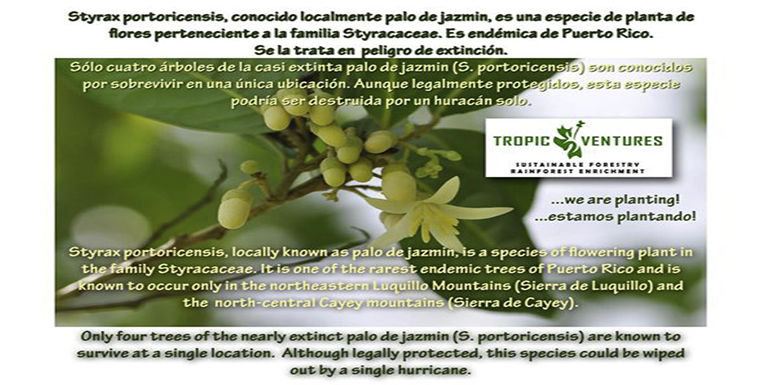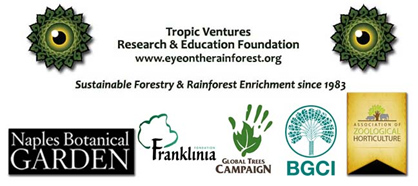
EARTHDAY BOTANICAL EXPEDITION
at Las Casas de la Selva, 22nd April 2021
On Earthday 2021, a team of intrepid plant experts will spend the day in the Las Casas forest on a major survey, to scout for rare and endangered endemic species, and to identify everything along the journey. The team will identify trees, shrubs, lianas, grasses, bryophytes, fungi, fauna, and whatever else they find!!
Las Casas de la Selva is collaborating with Botanic Gardens Conservation International via the Franklinia Foundation, a private foundation established in Switzerland. BGCI is a registered charity and company in England and Wales, and in the U.S. as a 501(c)(3) non-profit organization. www.bgci.org
Chad Washburn, Director of the Naples Botanical Garden in Florida, USA. NBG is working with the team at Las Casas de la Selva throughout the process, and will join them in the field later in 2021.
In January 2021, Las Casas de la Selva successfully applied for a grant through Naples Botanical Garden to build a shade tree nursery at the project. The Association of Zoo Horticulture, (AZH), provided this grant.
See the video of this Earthday Botanical Survey 2021, at Las Casas de la Selva, Sustainable forestry & Rainforest Enrichment Project in Patillas, Puerto Rico. https://youtu.be/i2t4ISqMbIk
Conserve Magazine Pages 16-20 https://www.naplesgarden.org/wp-content/uploads/2021/08/Conserve.pdf
The Global Tree Campaign has partnered with Eye on the Rainforest, in Puerto Rico, with the aims of conserving tree species most at risk of extinction by increasing the technical capacity of project partners and improving the conservation status of these tree species. https://globaltrees.org/projects/securing-the-conservation-of-endemic-trees-in-puerto-rico/
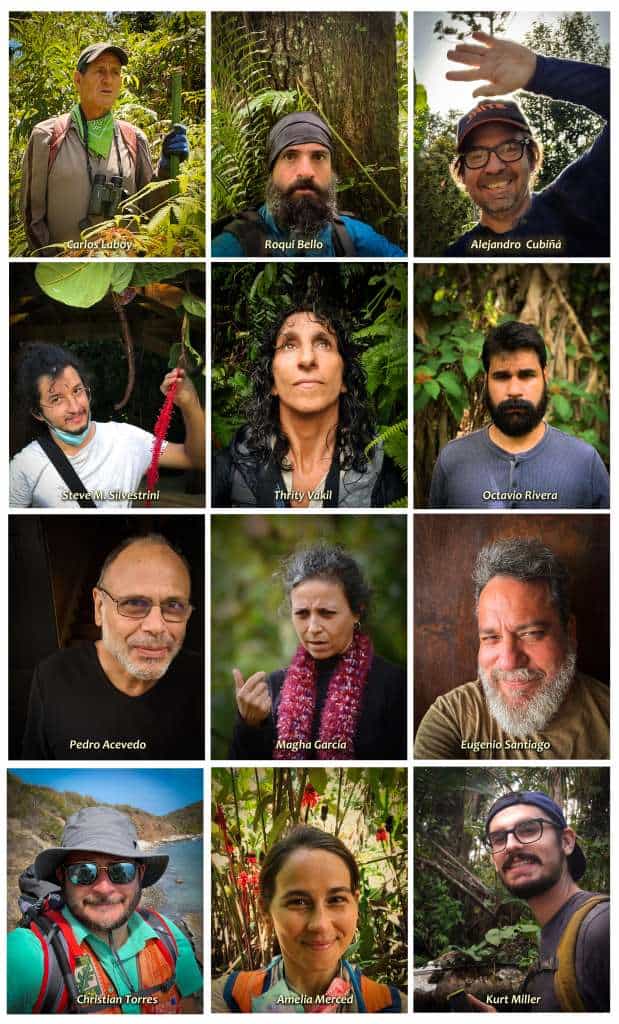
Botanical Team Bios
| Thrity (3t) Vakil serves as President of Tropic Ventures Research & Education Foundation at Las Casas de la Selva, a 1,000 acre Sustainable Forestry & Rainforest Enrichment Project in SE Puerto Rico, established in 1983, as a demonstration project to encourage similar practice in the Caribbean and globally, and as a contribution to economic development, that encourages local protection and sustainable management of secondary tropical forests. 3t has worked on tree planting, tree-id, selective harvesting, milling, and wood-drying operations for two decades, and has led sixty Earthwatch research teams into the forest, observing, measuring, monitoring, and planting, hundreds of trees. 3t directs endangered species conservation & recovery within the Tropic Ventures forest, propagates trees, and is currently surveying the land with a team of world-class botanists to locate critically endangered species in a collaboration with Botanical Gardens Conservation International. From a background in theater design and scenic art, and an Associate of the Institute of Ecotechnics since 1990, 3t has hands-on experience in a range of fields: ecology, expeditions, event management, arts, performance, and theater. On a major coral reef research expedition in the mid 90’s, 3t served three years as Assistant to the Expedition Chief, diving on remote coral reefs in the Red Sea & Indian Ocean, on the Institute’s Research Vessel Heraclitus, also crossing the Atlantic and Mediterranean Oceans. In 2015, 3t co-founded Puerto Rico Hardwoods, Inc. with Andrés Rúa, and from 2017 pioneered efforts in Puerto Rico to save hundreds of downed valuable hardwood trees after Hurricane Maria, that were destined for landfill. 3t is a Fellow of the Linnean Institute, a Fellow of the World Academy of Art & Science, and an accomplished artist. In 2021, 3t won an Innovation award from Yale University’s International Society of Tropical Foresters. |
| Steve Maldonado Silvestrini studied Architecture at the University of Puerto Rico, Rio Piedras Campus. Currently, he is an independent researcher on Neotropical Botany, Ecology and Taxonomy focused on the insular Caribbean, at the UPRRPR Herbarium. His studies aim to develop data on coastal plant communities, coastal habitats, and exotic species being introduced to the Caribbean. He is mixing both professions on what he proposes as non-anthropocentric or post-anthropocentric architecture, architecture for non-humans or not centered on human needs, but on an ecologically inclusive approach. |
| Roberto Enrique Bello alias Roqui, was born and raised in Puerto Rico. He double majored in Zoology and Anthropology at Michigan State University, and completed a Master’s in Integrative Biology at the University of California, Berkeley. Passionate about natural history and exploration, he worked or interned at various institutions such as the Museum of Zoology at MSU, the Museum of Vertebrate Zoology at UC Berkeley, the National Museum of Natural History at the Smithsonian, the Marine Biology Laboratory in Woods Hole MA, and the Organization for Tropical Studies in Costa Rica. Before settling back in PR he embarked on a personal sabbatical through 13 Latin American countries visiting nature reserves, archaeological sites, research stations, animal rescue facilities, etc. Upon his return to Puerto Rico, relevant job opportunities were scarce but he saw an opportunity in ecotourism. With the help of friends, he designed and developed an ecotourist enterprise in 40 acres of leased land in the Mameyes River drainage of Luquillo and adjacent to El Yunque National Forest. He managed this land and enterprise for almost a decade, until the hurricanes of 2017 turned the page and finished that chapter. Today Roqui is 46 years young and works as an independent environmental consultant on various projects concerned with natural resource management and biodiversity conservation. |
| Eugenio Santiago Valentín formally trained in botany at the University of Puerto Rico (UPR) in Mayagüez and at the University of Washington in Seattle. He is a Full Professor in the Department of Biology at the UPR in Río Piedras and is the director of the Herbarium of the UPR Botanical Garden. He has taught courses in biology, botany, plant taxonomy, ethnobotany, island biogeography and evolution. His areas of study include plant systematics and taxonomy, biogeography, plant conservation, history of science, and ethnobotany. His work focuses on the island of Puerto Rico and the insular Caribbean, where he has developed local and international collaborations. He has also participated with government agencies and non-for-profit organizations in initiatives for the recovery of threatened plants, for the public dissemination of scientific knowledge, and for the launching of activities to link science, nature, and the humanities. |
| Alejandro Cubiñá, President and owner of Reforesta, Inc. in San Juan Puerto Rico. UPR-RP graduate from the Masters in Science program under T. Mitchell Aide. Obtained a BA from Rollins College in Winter Park, Florida. Conducted extensive research in tropical forest restoration in Dominican Republic, Colombia, and Puerto Rico. Has led the biggest wetland restoration projects in challenging environments such as freshwater-forested wetlands on the island of Puerto Rico. Currently, Reforesta has the biggest privately owned native tree nursery in Puerto Rico and continues to add new species into its stock of over 8,000 trees. In addition to the ecological restoration work, Alejandro has conducted numerous flora and fauna surveys, wetland delineations, and prepared restoration plans. These surveys have led to the discovery of new populations of plant species such as Goetzea elegans, Ottoschulzia rhodoxylon, Myrcia paganii, and Libidibia monosperma. |
| Dr. Pedro Acevedo-Rodríguez (Ph.D., City University of New York, 1989) is a researcher and curator in the United States National herbarium at the Smithsonian Institution, Washington DC. He specializes in phylogenetic studies of the neotropical members of family Sapindaceae (Maples), especially of tribes Paullinieae (with ca. 500 species of climbing plants) and Melicocceae (ca. 75 species of trees and treelets); floristics of the neotropical lowlands, especially of the West Indies; diversity and floristic studies of neotropical climbing plants (lianas and vines, with about 700 genera); and botanical history in Puerto Rico. He has over 30 years of experience collecting and recording plants in the field, and numerous publications in his areas of expertise, as well as a website on West Indian botany and Lianas and climbing plants of the Neotropics. |
| Octavio Rivera Hernández is an agronomist graduated from the University of Puerto Rico, Mayagüez Campus (UPRM), where he completed the Agronomy and Soil Sciences programs respectively. Octavio has worked as a researcher at the UPRM and the Pennsylvania State University. There he contributed and collaborated on topics such as nutritional value of crops, post-harvest management and mycotoxin-producing phytopathogenic fungi. In 2018, he was the recepient of the Luis de Celis Prize, an award given by the Agro-environmental Sciences Department at the UPRM. Currently, he gives farmers recommendations and orientation regarding conservation practices, fertilization and pest control. Octavio also participates in the documentation and identification of native and introduced plant species in Puerto Rico. |
| Magha Garcia Medina is an eco-farmer and environmental activist in Puerto Rico. She is a member of Organización Boricuá, a grassroots group of farmers, environmentalists and other allies who advocate for agroecology, agroforestry, and the protection of natural resources. She is a collaborator at Las Casas de la Selva, the project that inspired her to find land and contribute with the restoration and the protection of local forests. In the last ten years, Magha had dedicated herself to the development of Pachamama Forest Garden on the west side of Puerto Rico. Her main activities involve research, rescue, and propagation of native and novel crops, as well exotic plants of the humid tropic region. Magha’s interests focus on agroecology/agroforestry/food sovereignty/human rights/seed saving/botany. |
| Amelia Merced is a plant biologist working with bryophytes, (plants that includes mosses, liverworts and hornworts). She is interested in diversity and distribution of bryophytes, the role of bryophytes in Puerto Rican forests, and how these plants respond to anthropogenic and non-anthropogenic disturbances. She works for the USDA Forest Service International Institute of Tropical Forestry, and collaborates with the Herbarium of the University of Puerto Rico, Río Piedras, where she works with the bryophyte collection. She is currently surveying the bryophyte flora of the island, and preparing guides to common bryophytes of PR, including El Yunque National Forest, and community and urban forests. Other projects are to assess the distribution and current status of the peatmoss Sphagnum in Puerto Rico, and habitat preferences of bryophytes in the Luquillo Experimental Forest. Amelia Merced-has a BA in science and MS in biology from the University of Puerto Rico, Mayaguez and a PhD in Plant Biology from Southern Illinois University in Carbondale, IL. She was a NSF GK-12 fellow in PR and IL working with schoolteachers to integrate inquiry activities in science classes of schools rural areas. She was a mentor and role model for the PBS Kids show ‘SciGirls’ filmed in PR and was featured in the Nat Geo web series ‘I Can Science’. Dr. Merced has 14 peer-reviewed publications, research awards recognitions, and has trained and mentored undergraduate students in various bryophyte identification and ecological projects. |
| Kurt Miller is a Washington native with a background in agriculture and tropical fungal taxonomy. He has collaborated with several prominent mycologists, including recent Distinguished Mycologist Award recipient, Dr. Jean Lodge at USDA’s Northern Research Station in El Yunque, and his work with Harvard mycologist Lawrence Millman can be seen in Fungi Magazine. Kurt received a BFA from Western Washington University and studied agriculture at the University of Puerto Rico in Mayagüez. He served in the US Coast Guard for 5 years as a Marine Science Technician fulfilling the Marine Environmental Response mission in Puerto Rico, eventually certifying as a translator. During and subsequent to his service, he has documented over 200 macrofungi in the Caribbean region, many of which are unreported in previous surveys. Several of these new taxa are currently being cultured and assessed for their culinary and commercial viability in Huerto Rico’s laboratory. Kurt has also led several educational and outreach events to teach school groups and the community about the importance of fungi in the environment. |
| Carlos Laboy holds an Associate Degree in Biology from the University of Puerto Rico in Humacao. His best attribute is a keen and instinctive knowledge of the natural world. He has the honor of having a fungus named after him. Laboy has worked for both state and federal conservation agencies in Puerto Rico (DNER and U.S. Forest Service). With DNER he collected data on the behavior and reproduction of wild parrots to assist in the development of techniques to increase parrot productivity, fertility, and survival. He also participated in the Rio Abajo parrot suitability study. In addition, duties included collection of samples on the lagoons, sanctuaries, and estuaries throughout the Island. At El Yunque, with the Forest Service, he continued management work of the wild and captive parrot populations. During his time in the rainforest, he rediscovered unaccounted populations of listed plants such as Palo de Jazmín (Styrax portoricensis), chupacallos (Pleodendron macranthum), and numerous other rare species. Since 2007, Carlos has worked with Reforesta, Inc. in the implementation of wetland restoration projects across Puerto Rico, and conducting flora and fauna surveys as well. |
| Christian Torres Santana is the Forestry Partnerships Leader for Latin America for Terraformation and consulting botanist and arborist. With an MS in Botany from the University of Hawaii, a BSA in Horticulture from UPR Mayagüez, a Nonprofit Management Executive Certificate from Georgetown University, he is currently completing an Executive MBA from the Inter American University, PR. Christian has worked extensively with rare and threatened plants in Hawai‘i and the Caribbean. In 2014, after nearly a decade as a botanist with the US FWS and the US Forest Service’s International Institute of Tropical Forestry, he became the director of the Doña Inés Park Arboretum in San Juan, PR. He led research, education, and conservation efforts for the native plant collection. Over the past 15 years, Christian’s work has specialized in pollination biology, forest health, biodiversity conservation, particularly on rare plant conservation, conservation horticulture, and environmental education. He recently received the Marsh Award for International Plant Conservation from Botanic Gardens Conservation International and the Kittleman Scholar for Aspiring Public Garden Leaders from the American Public Garden Association. He is a certified international Arborist, a Professional Horticulturist, and a Licensed Agronomist in Puerto Rico. |

